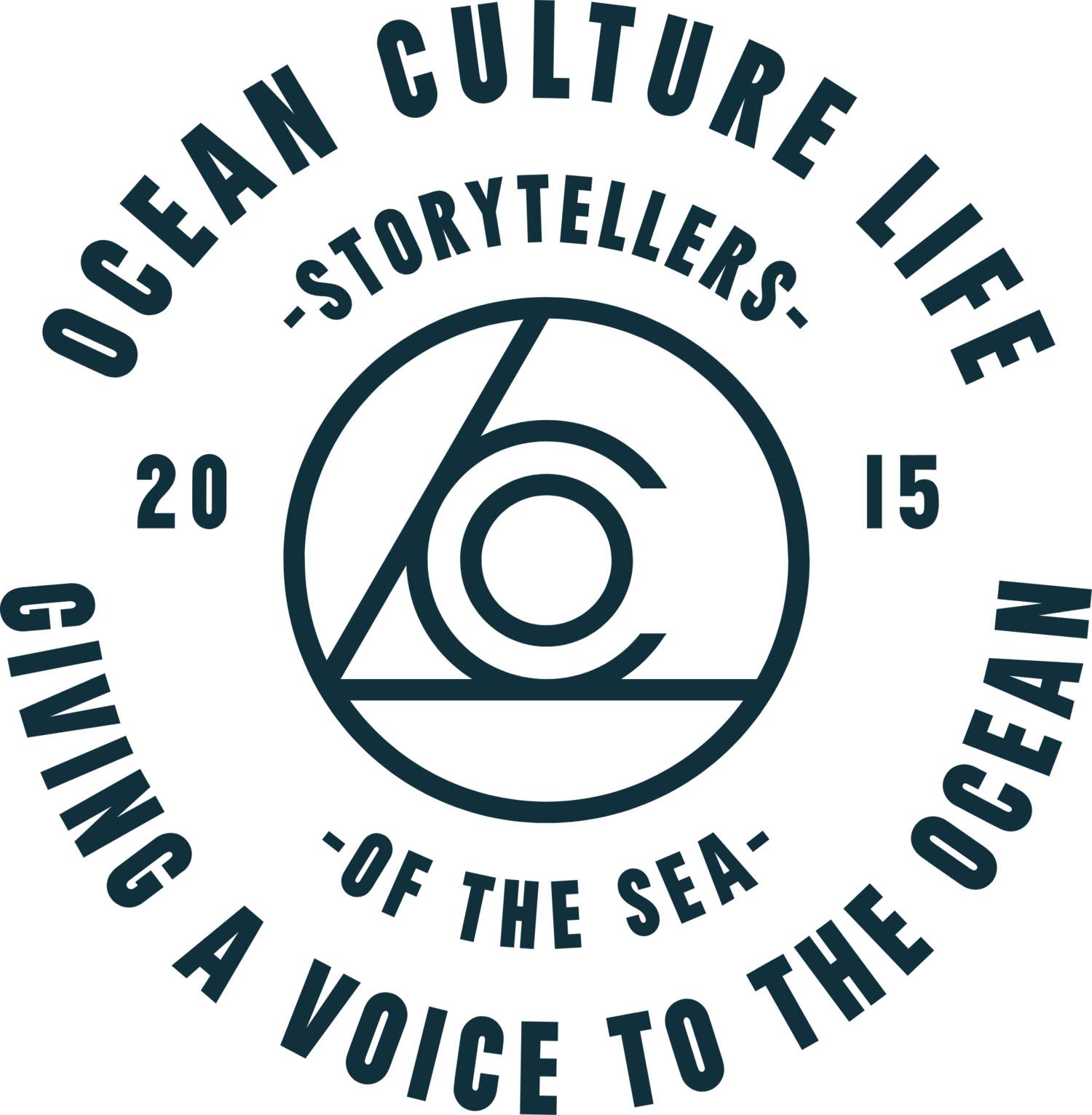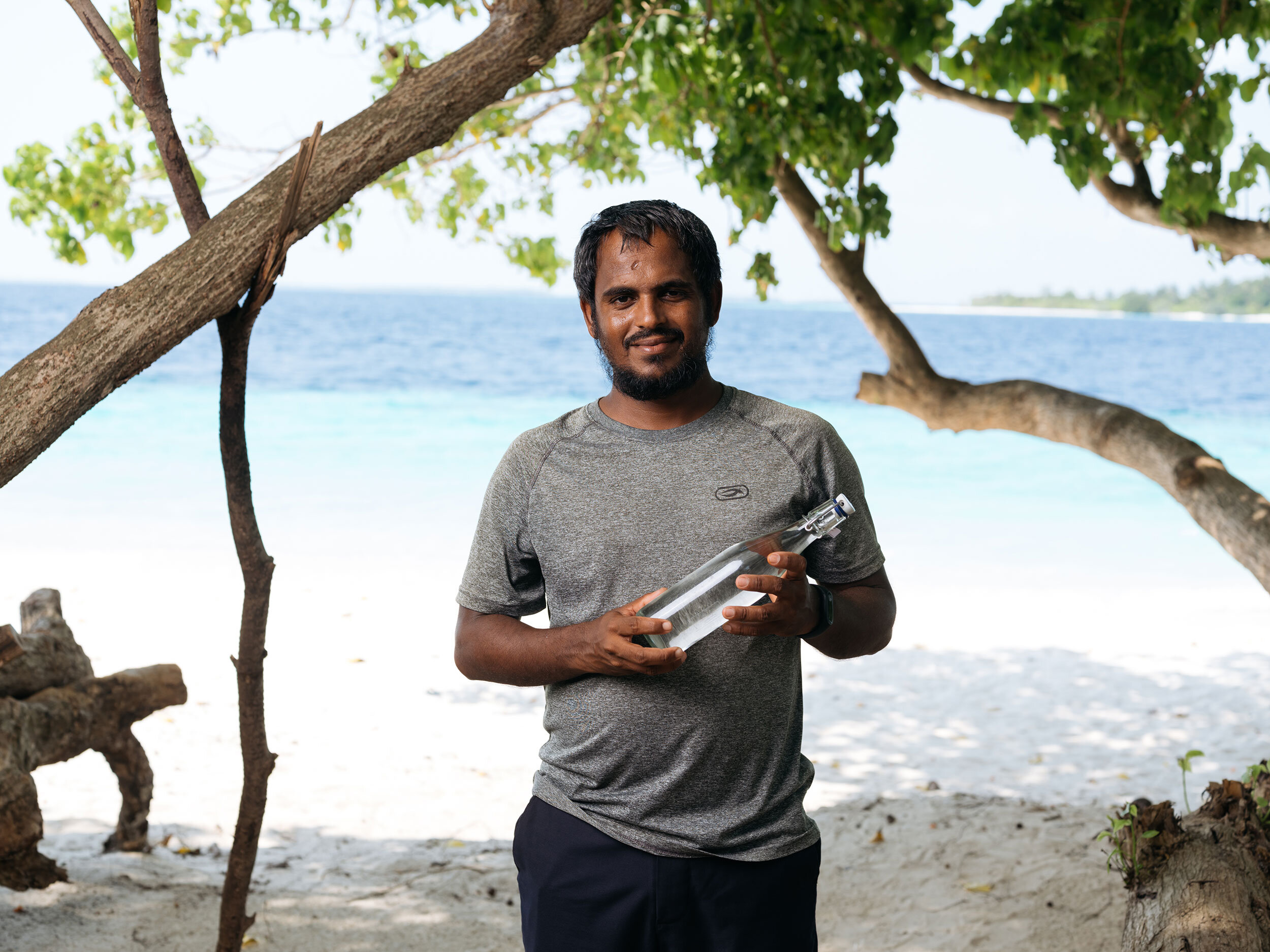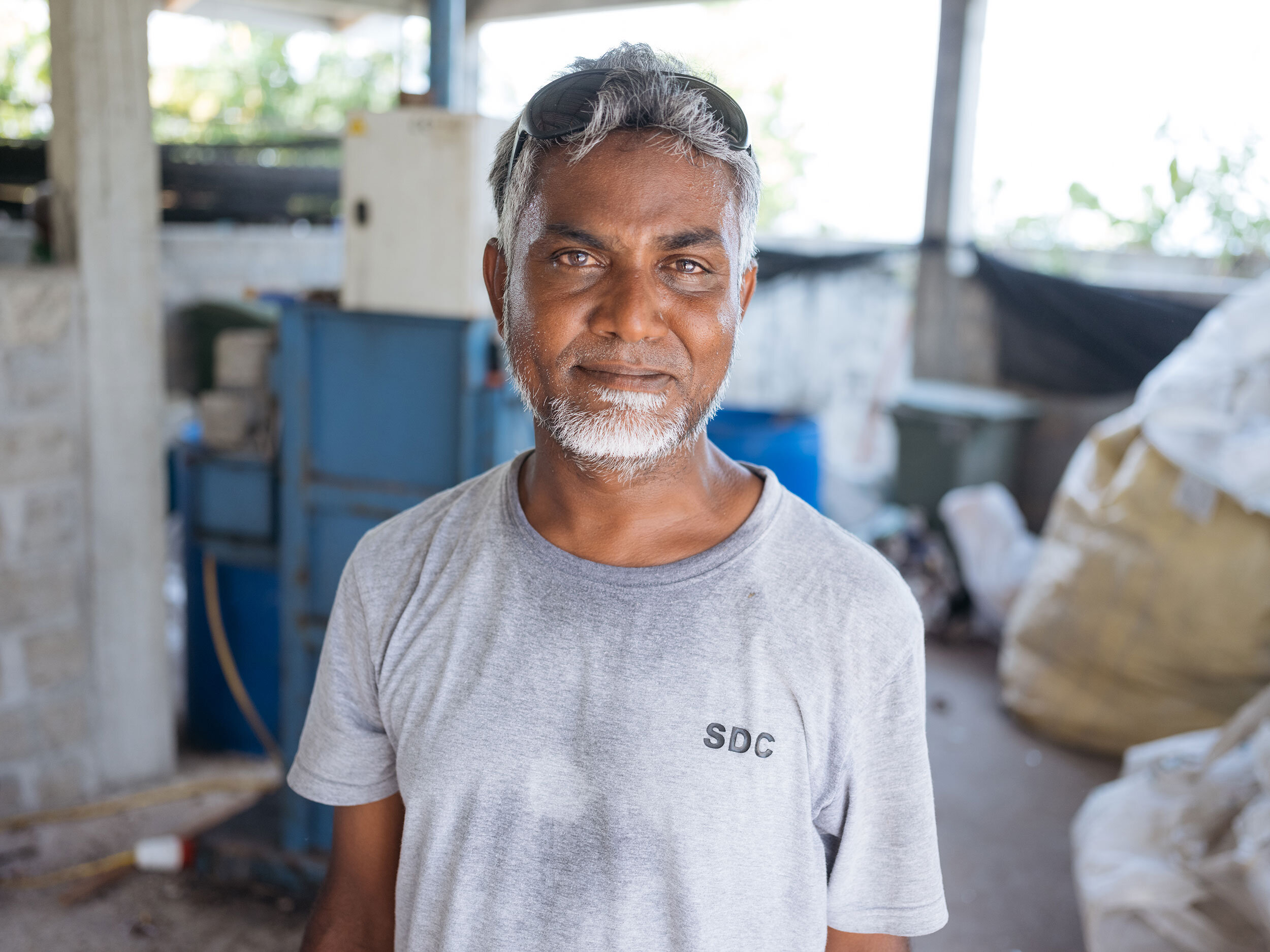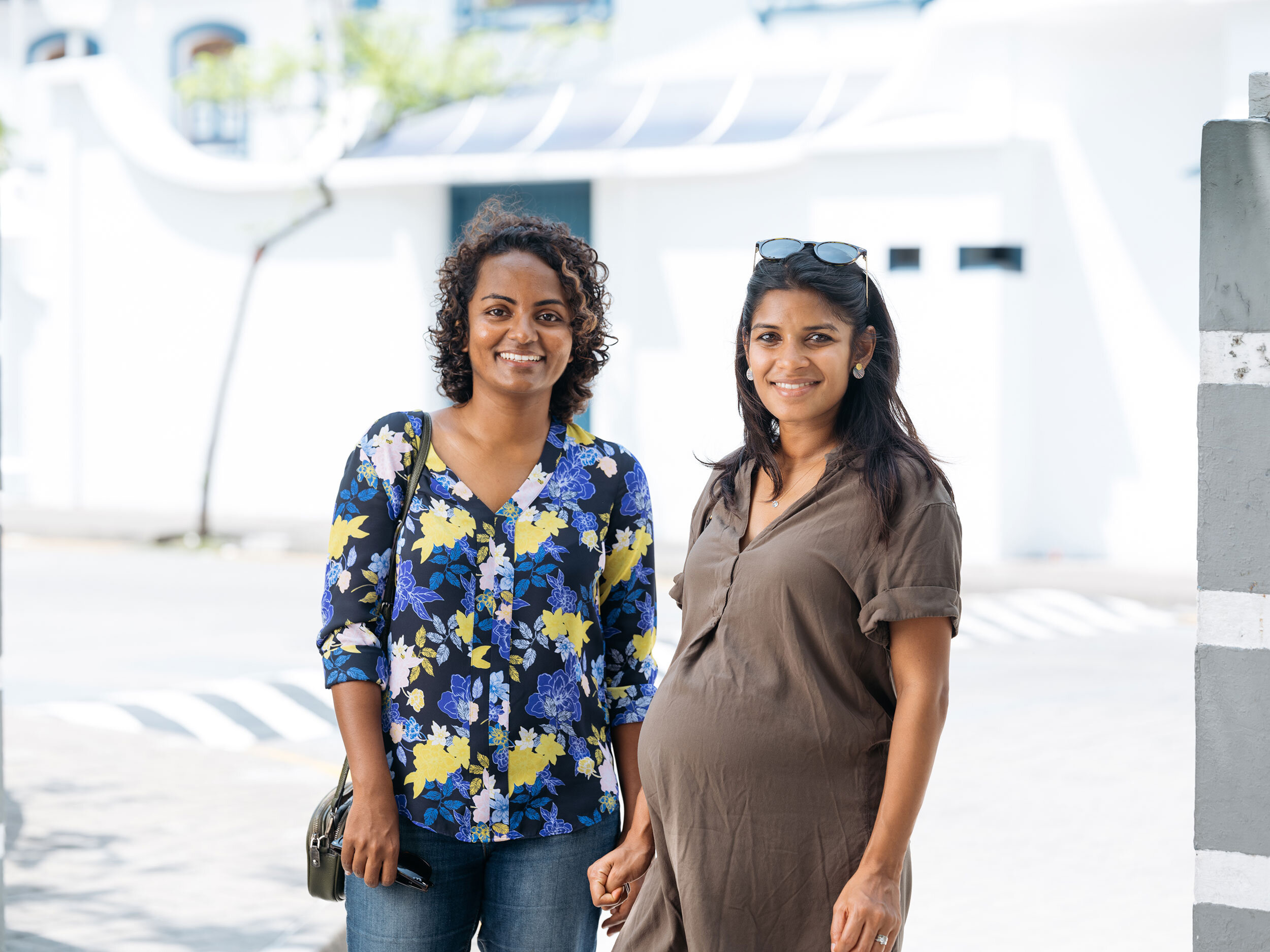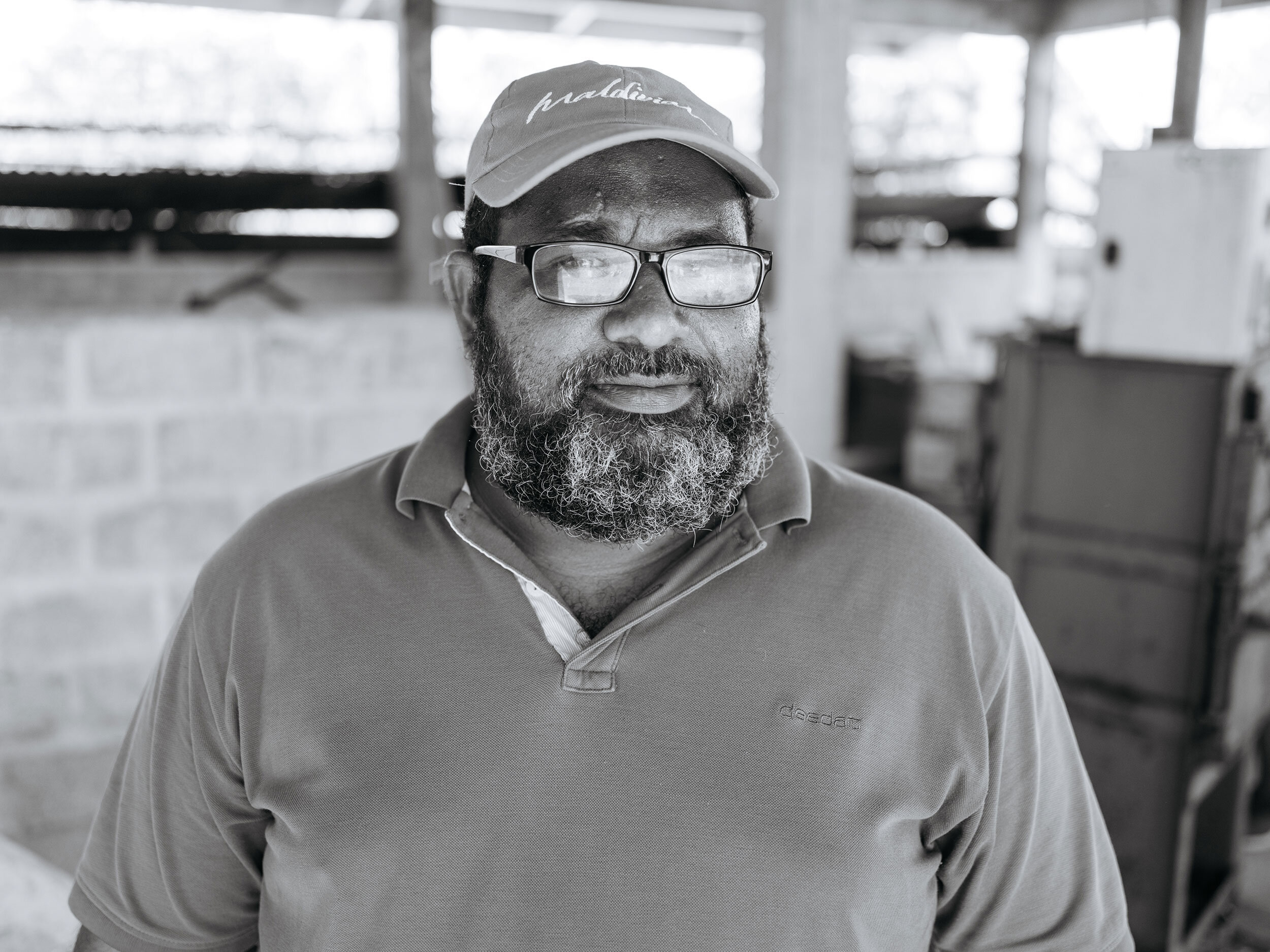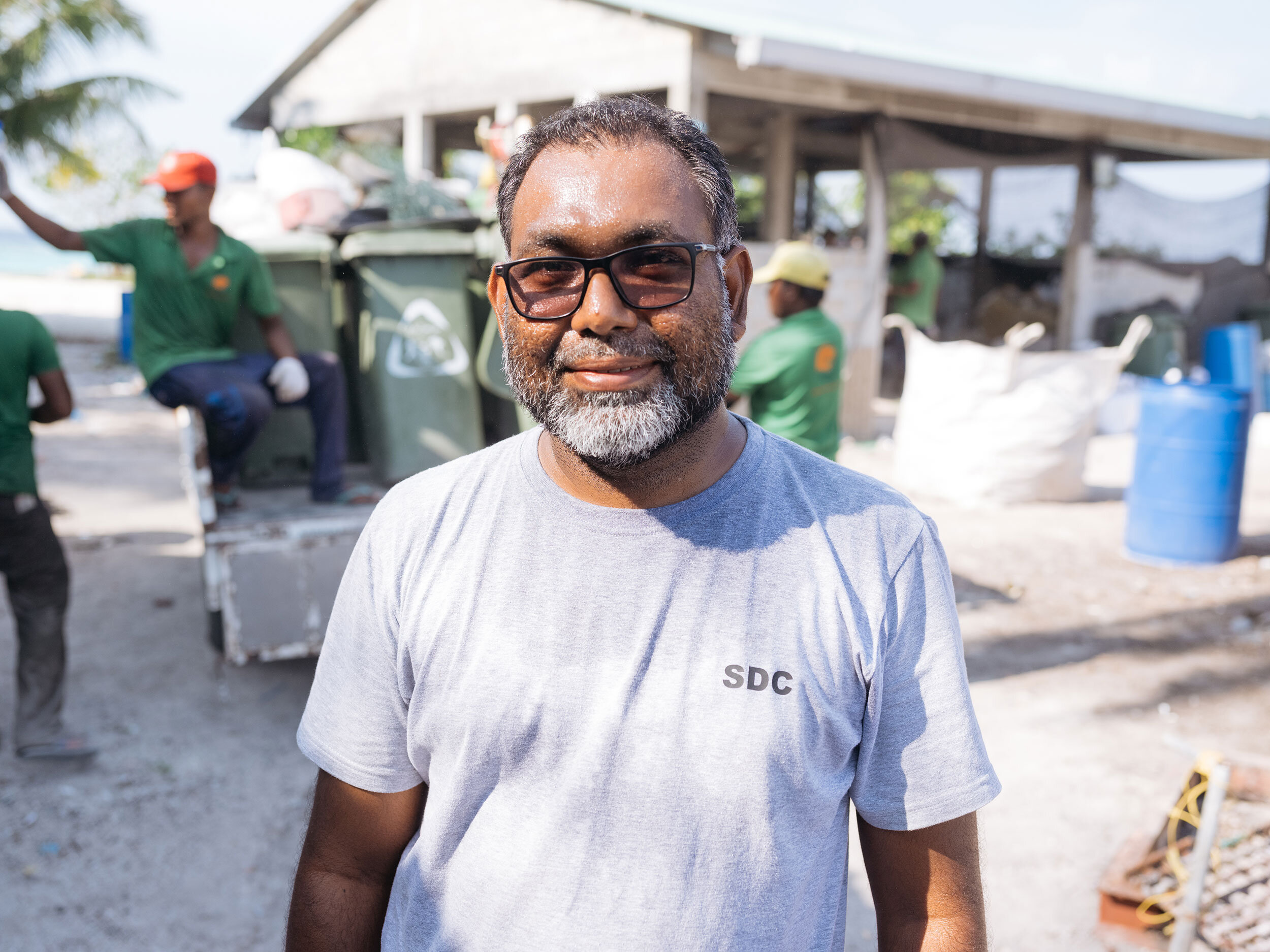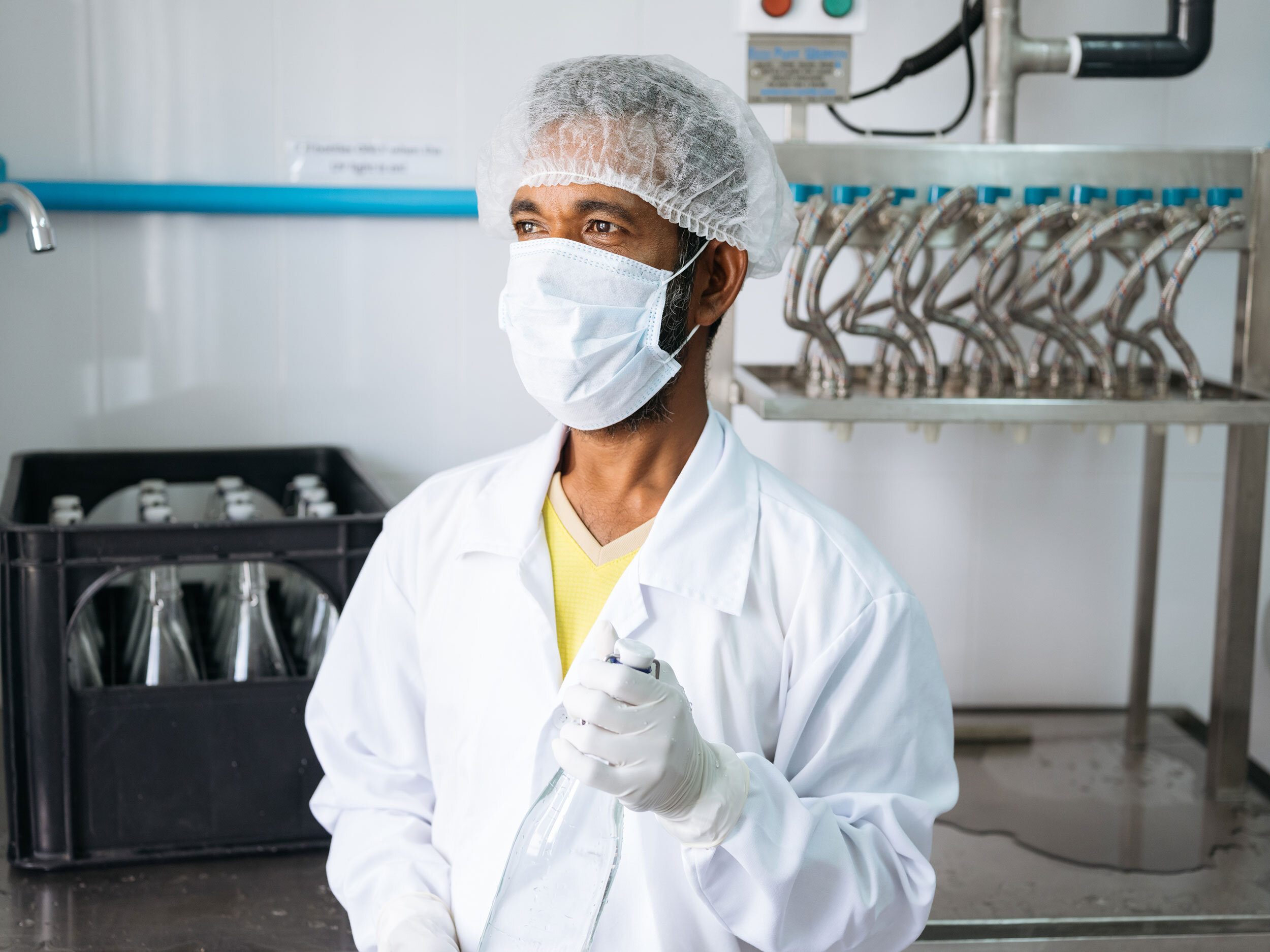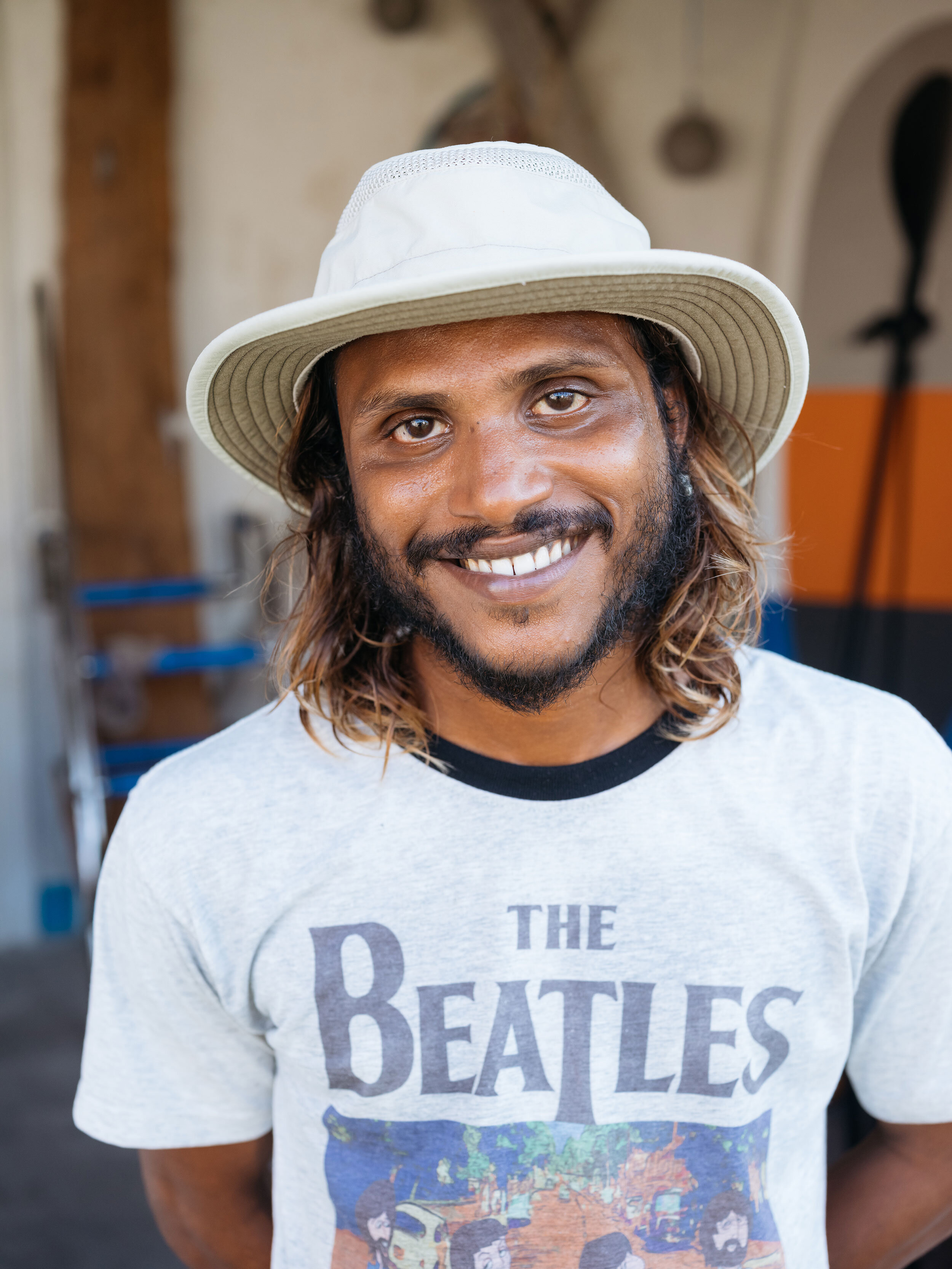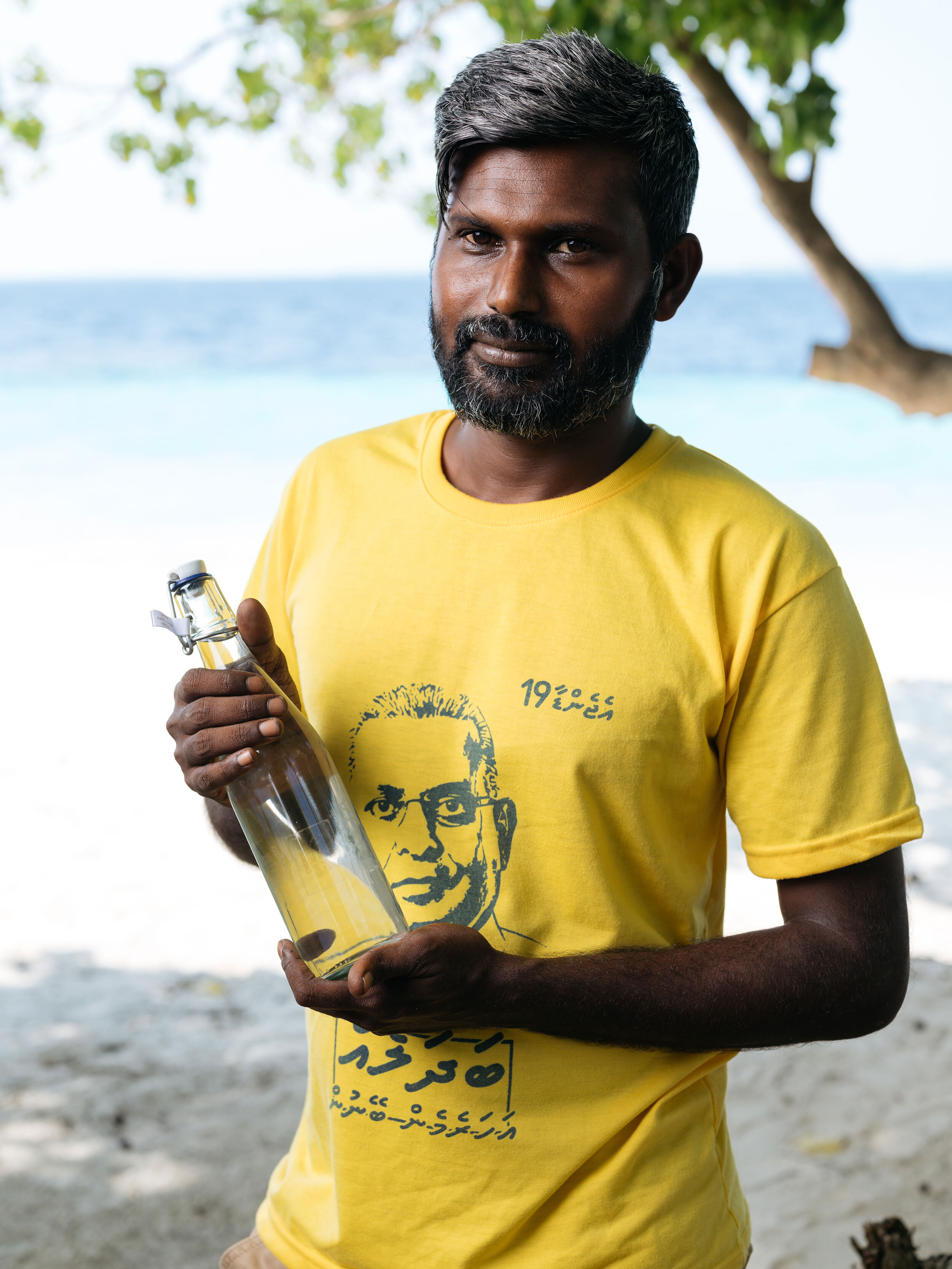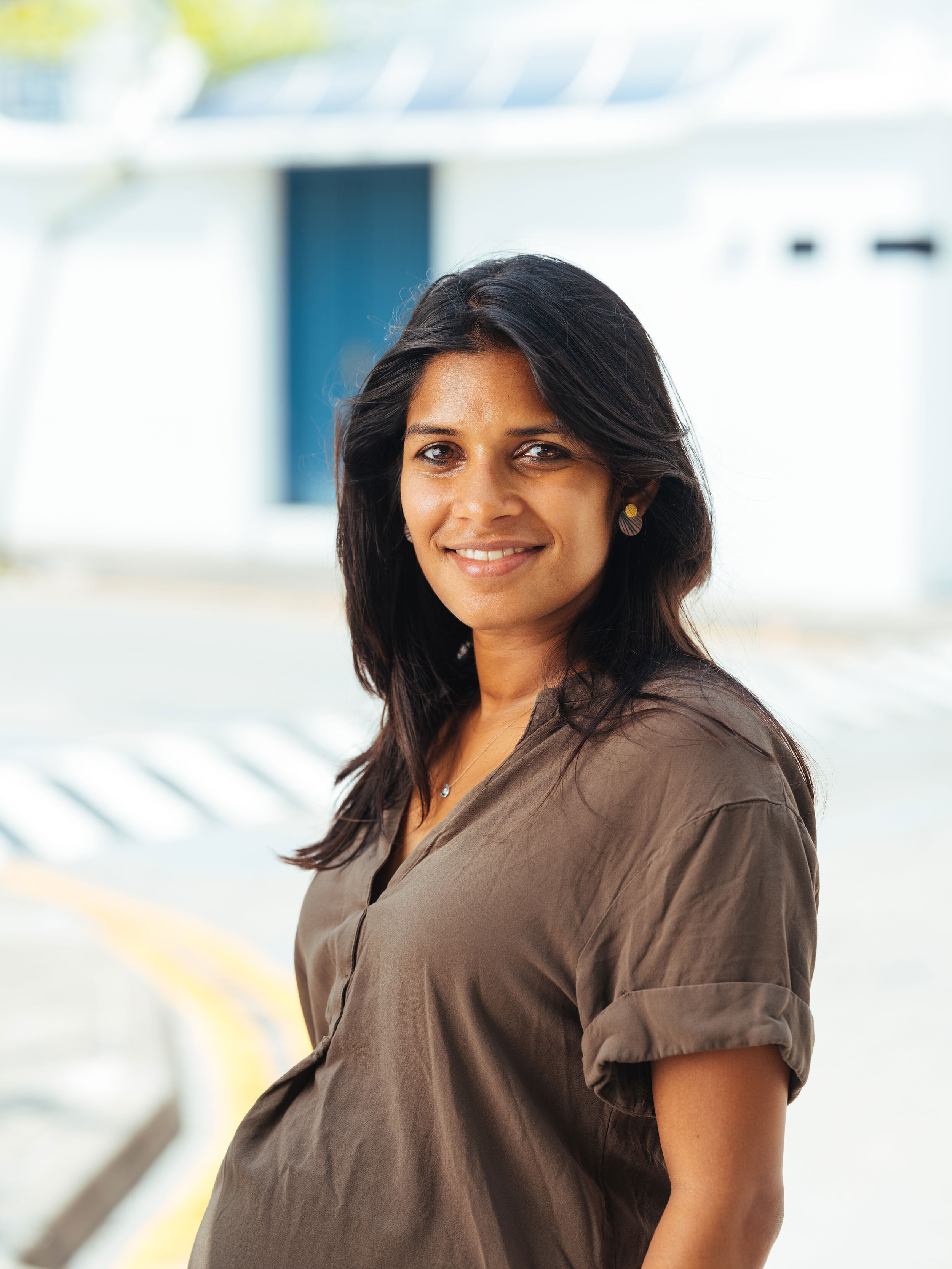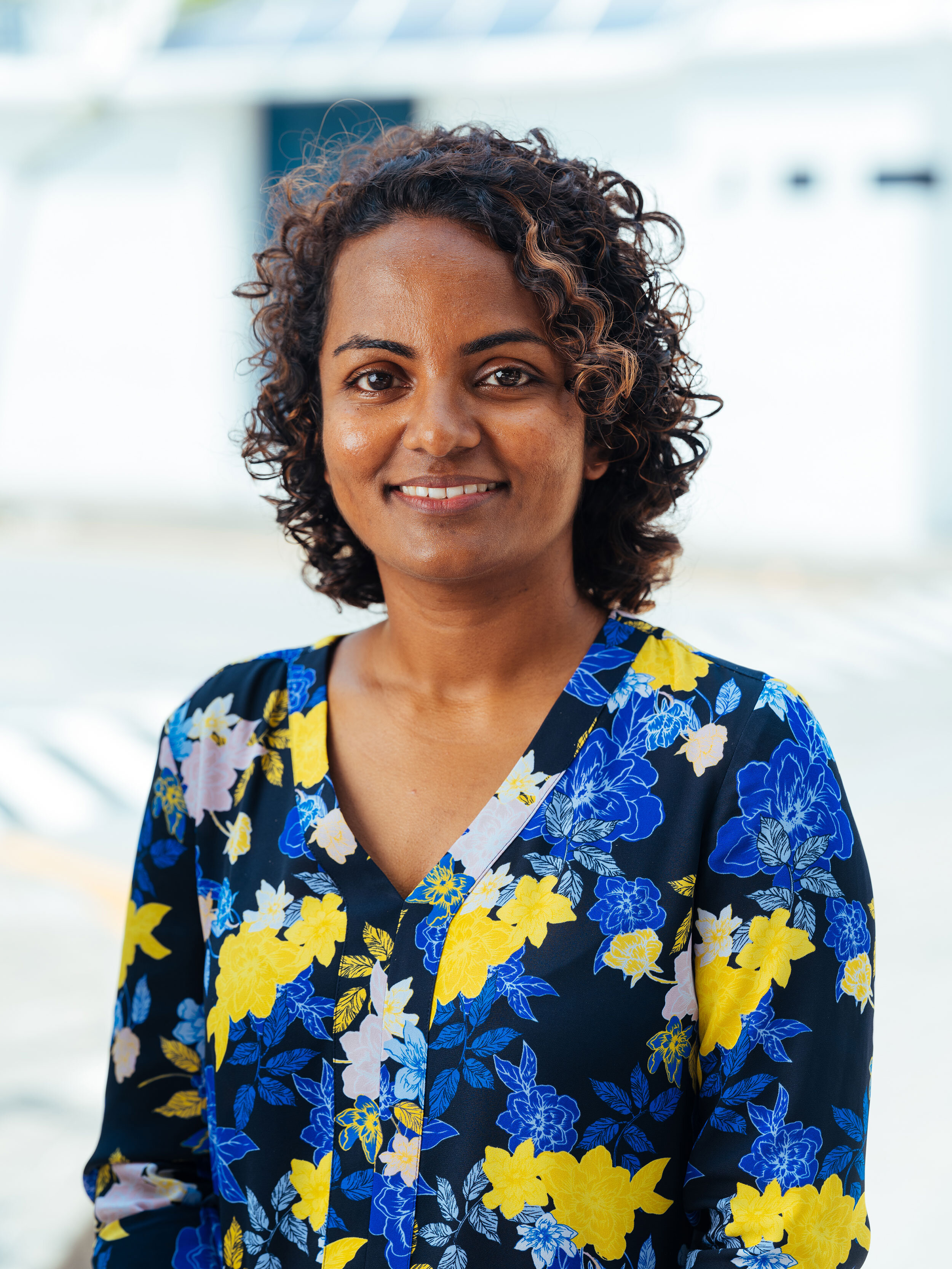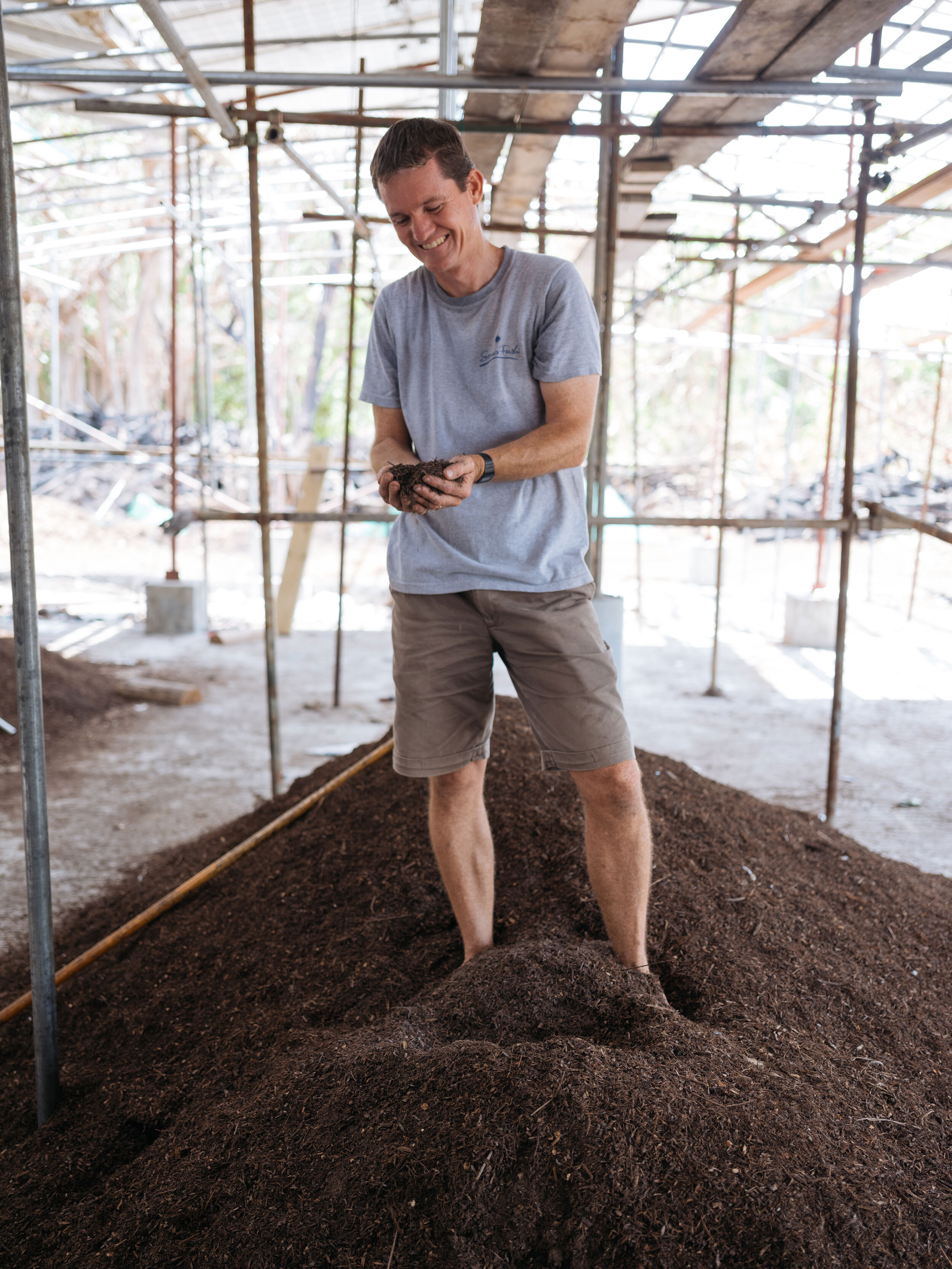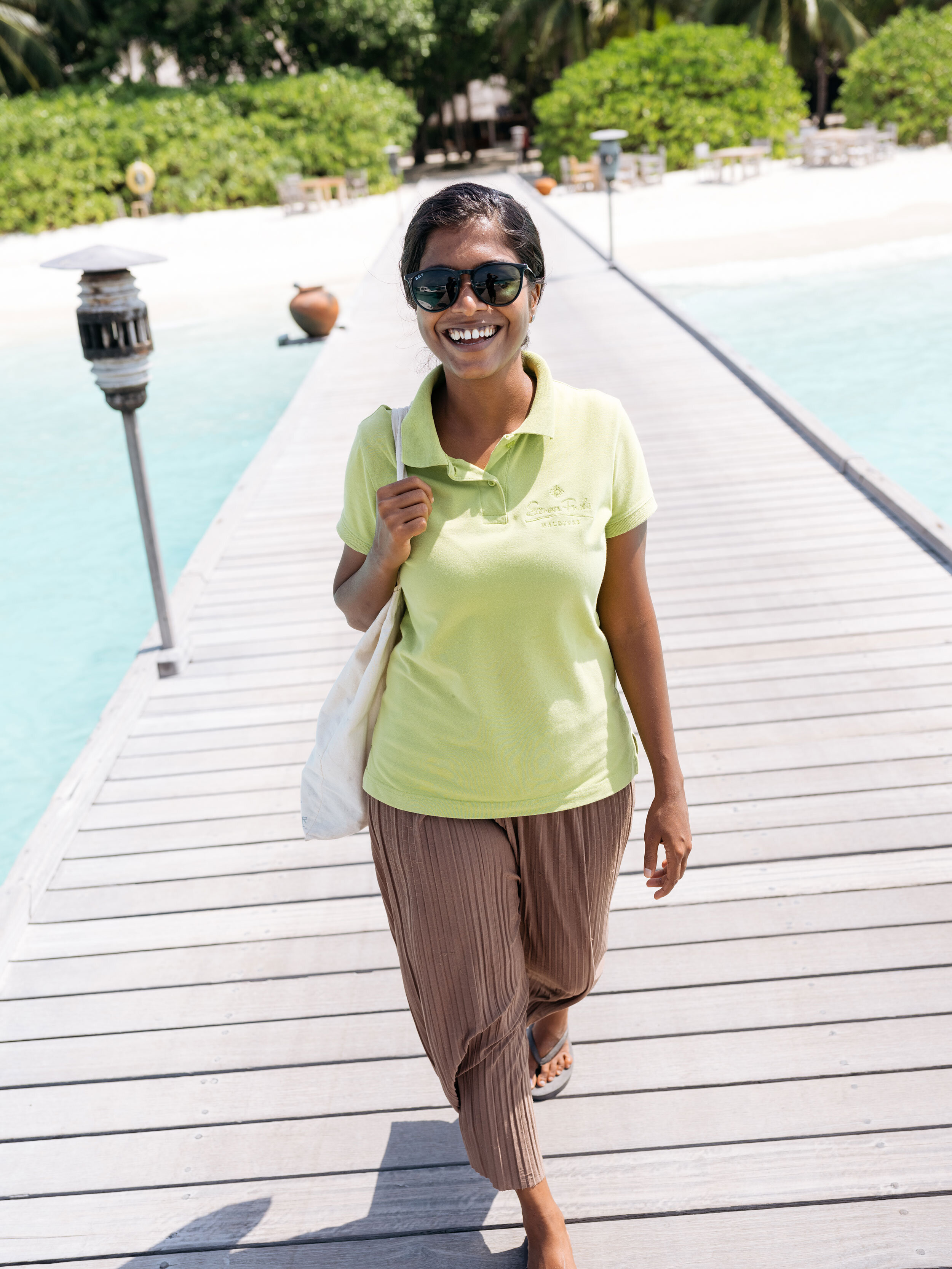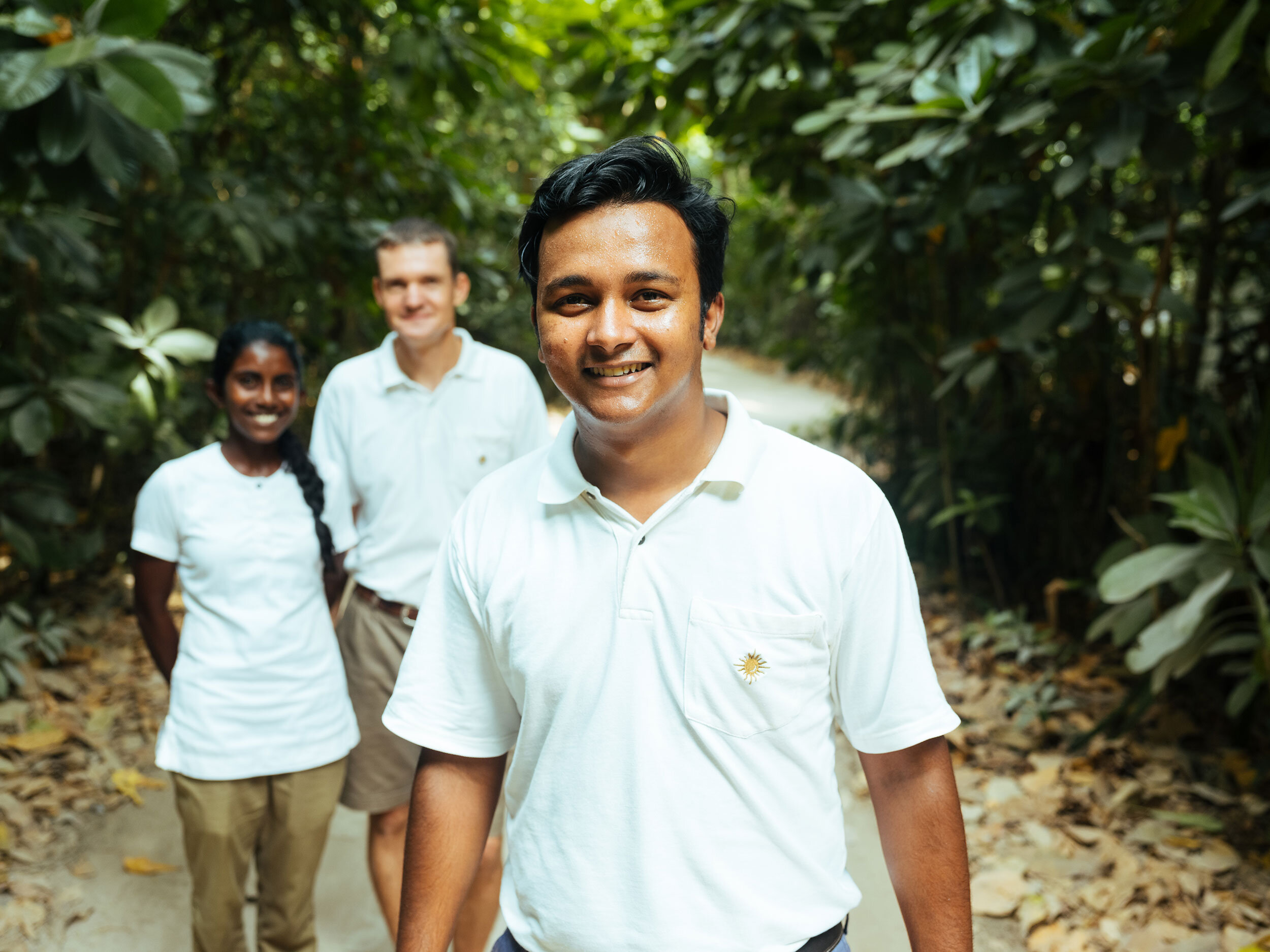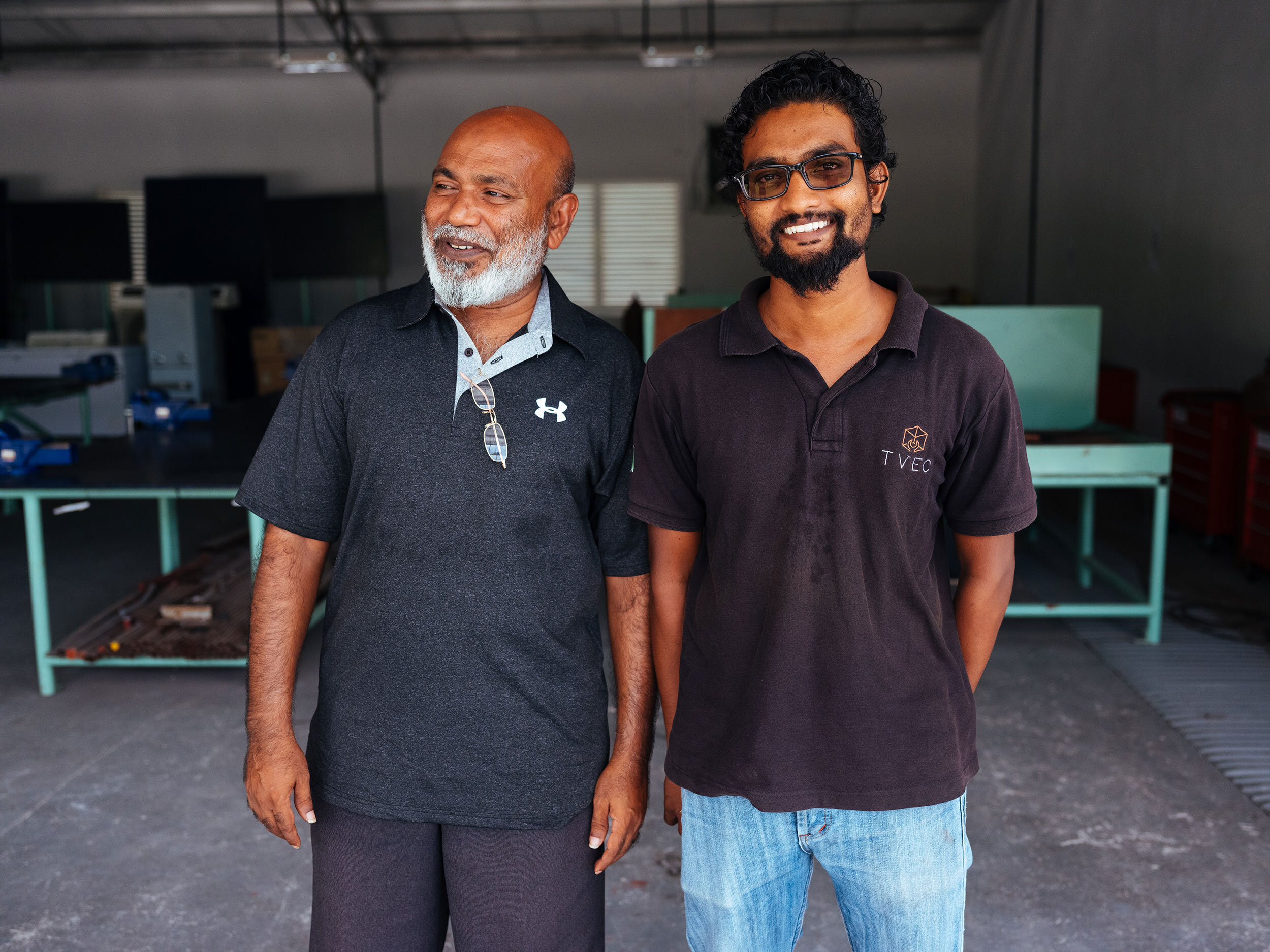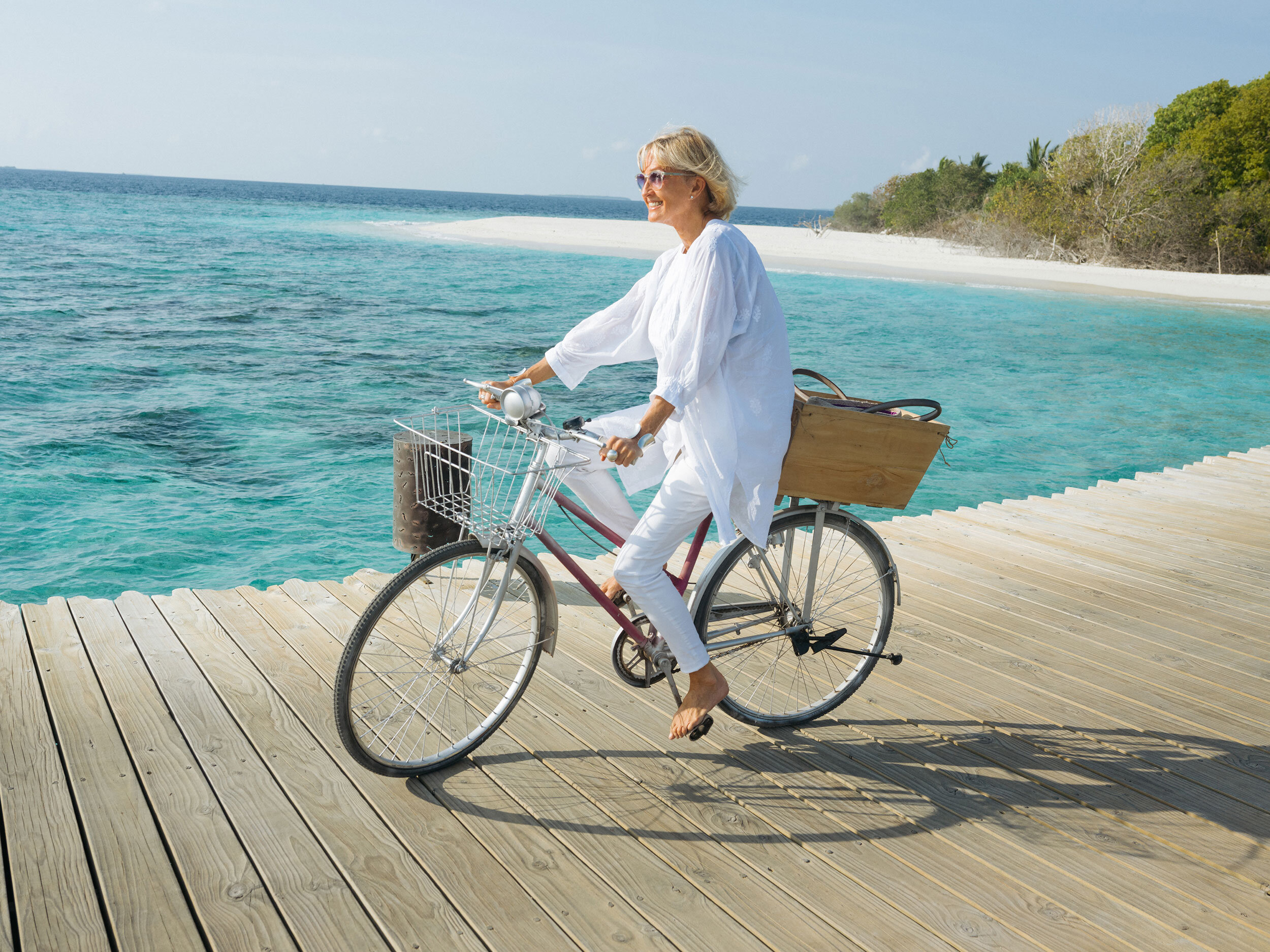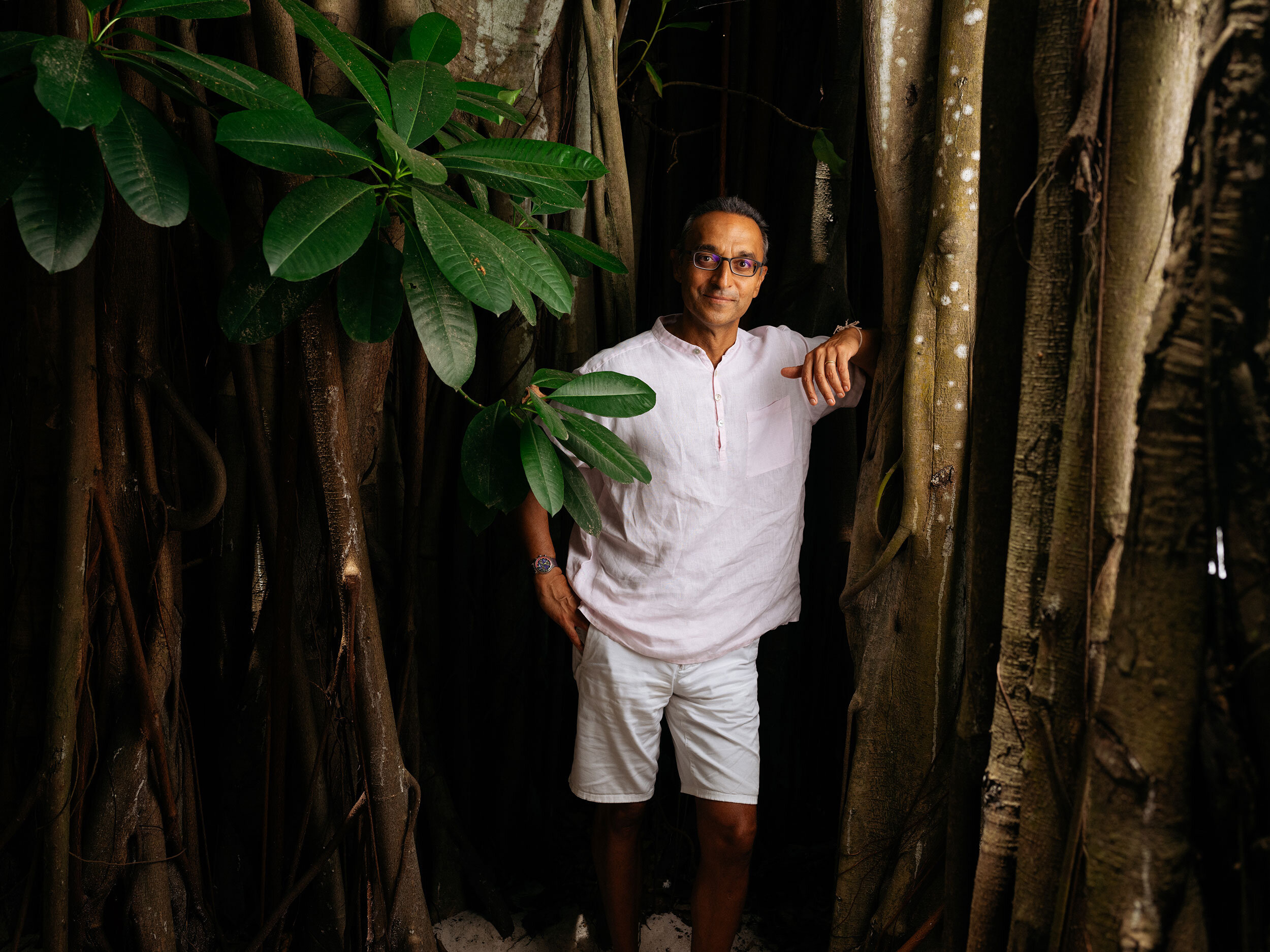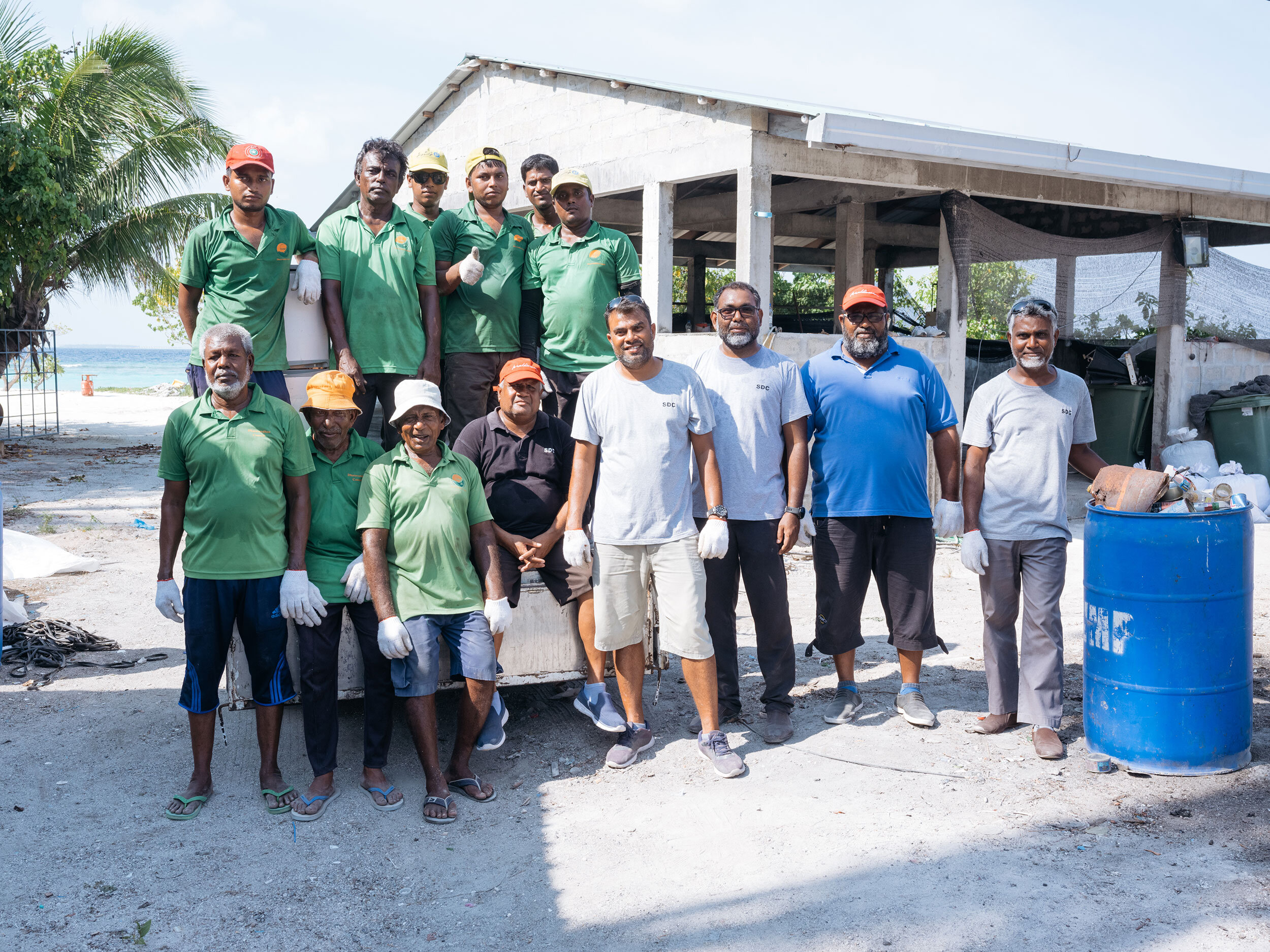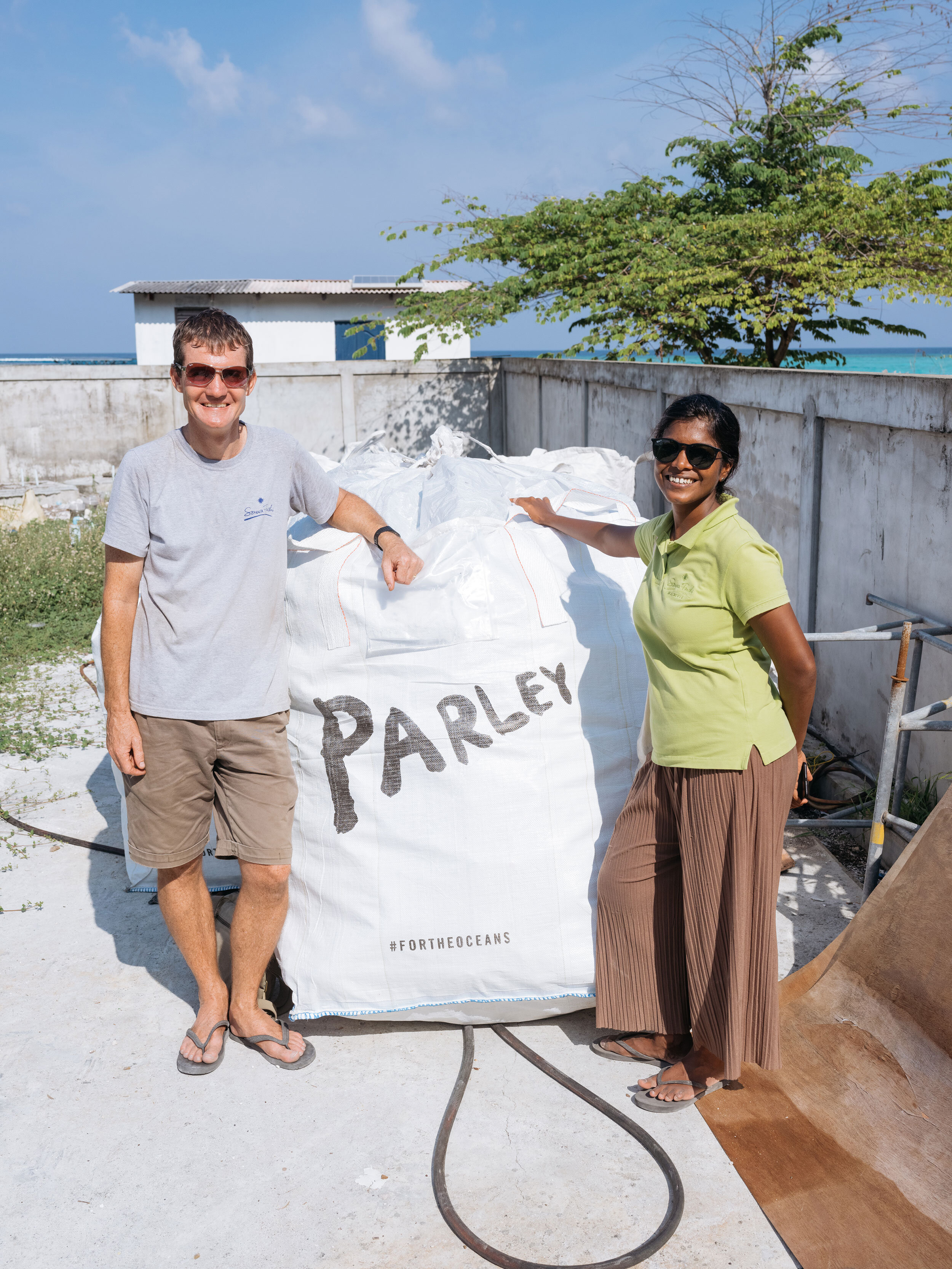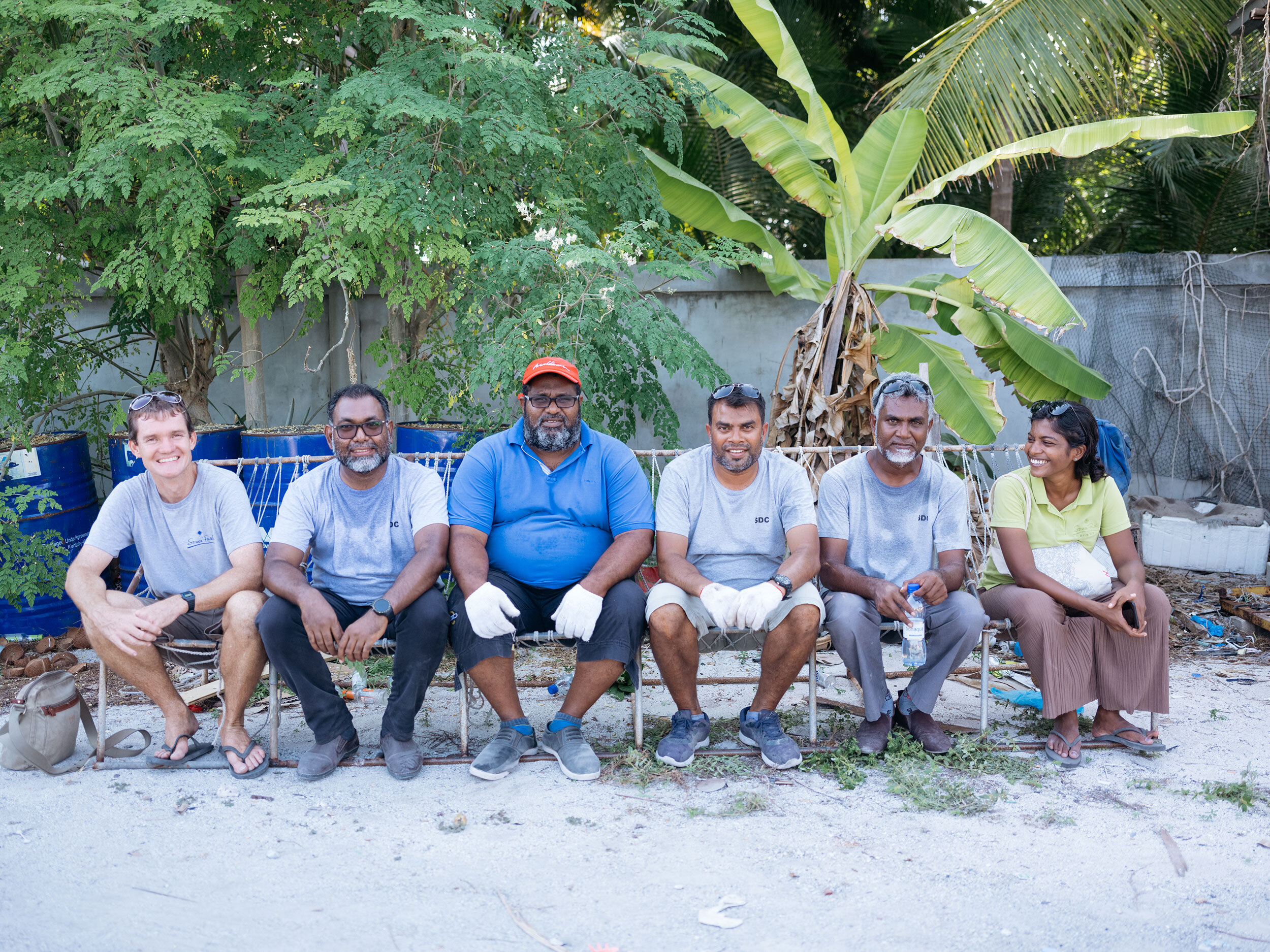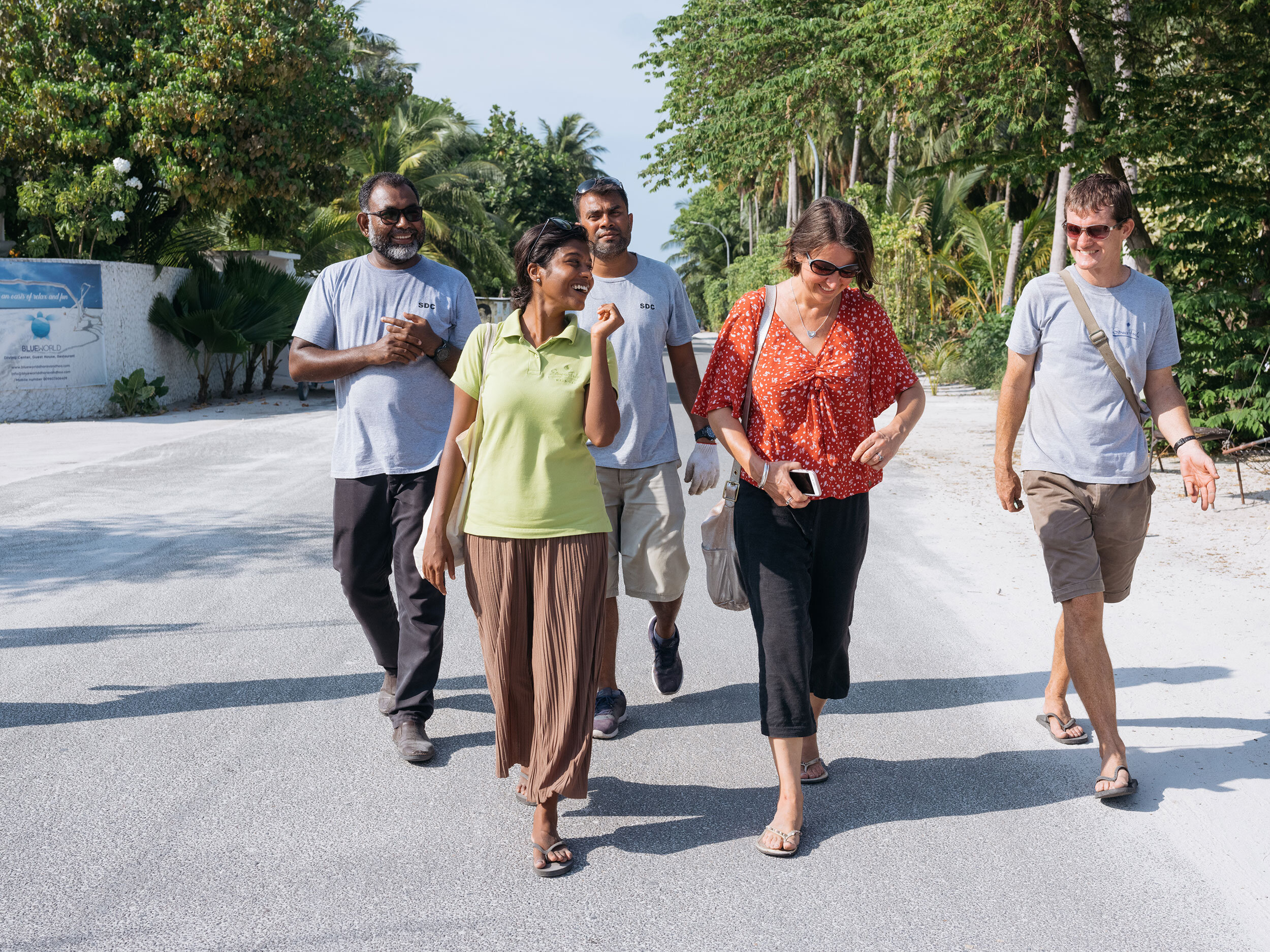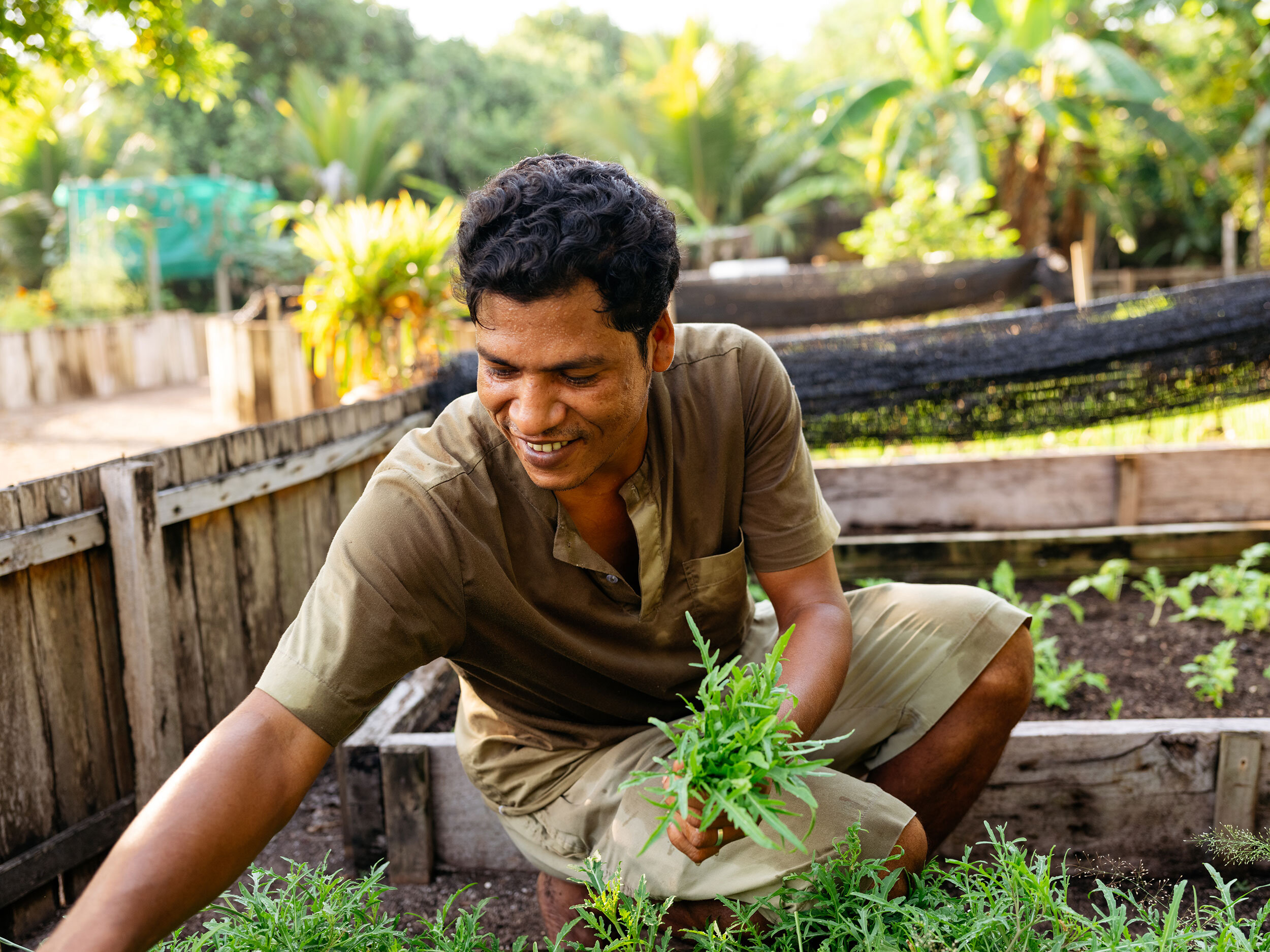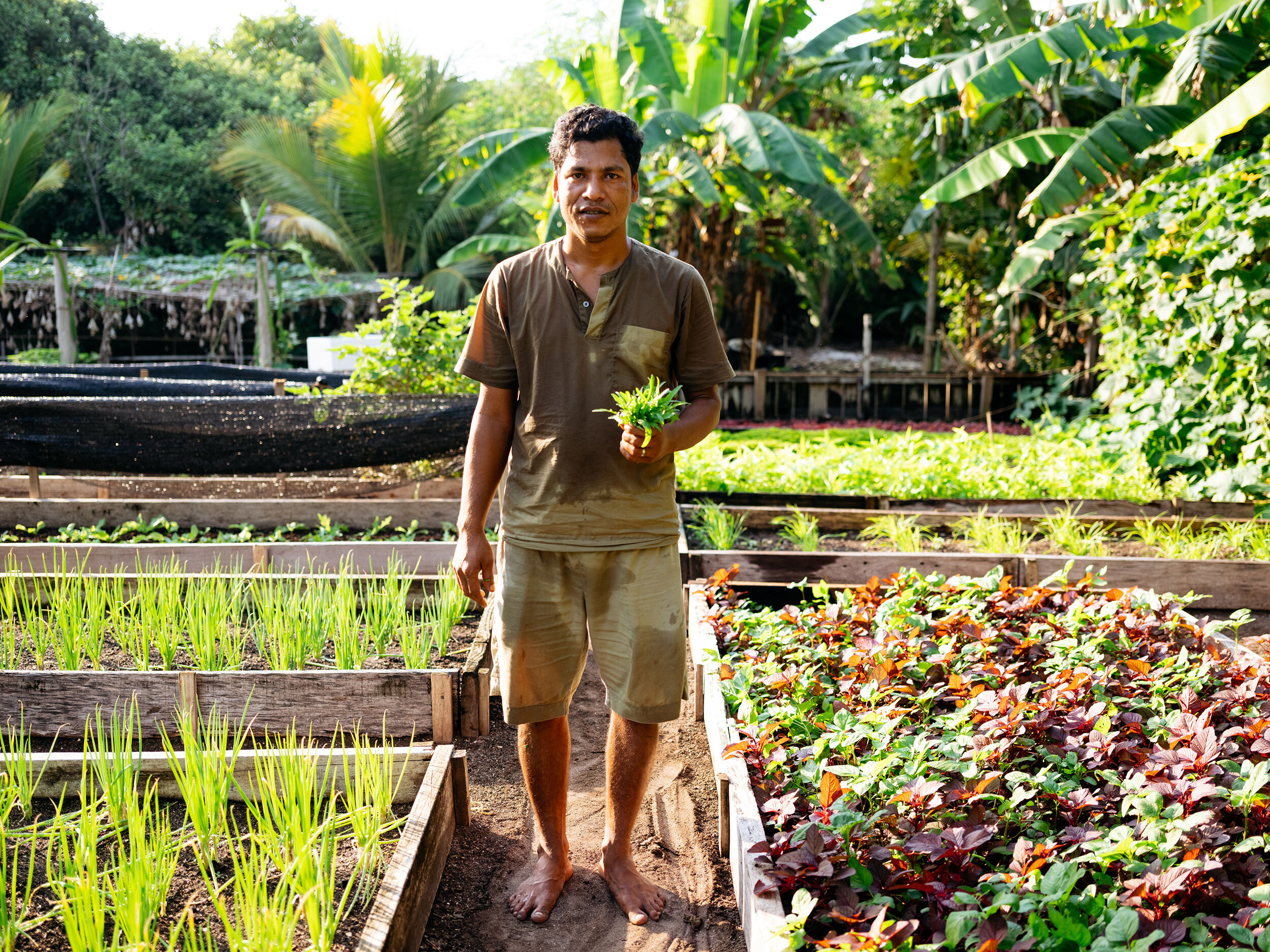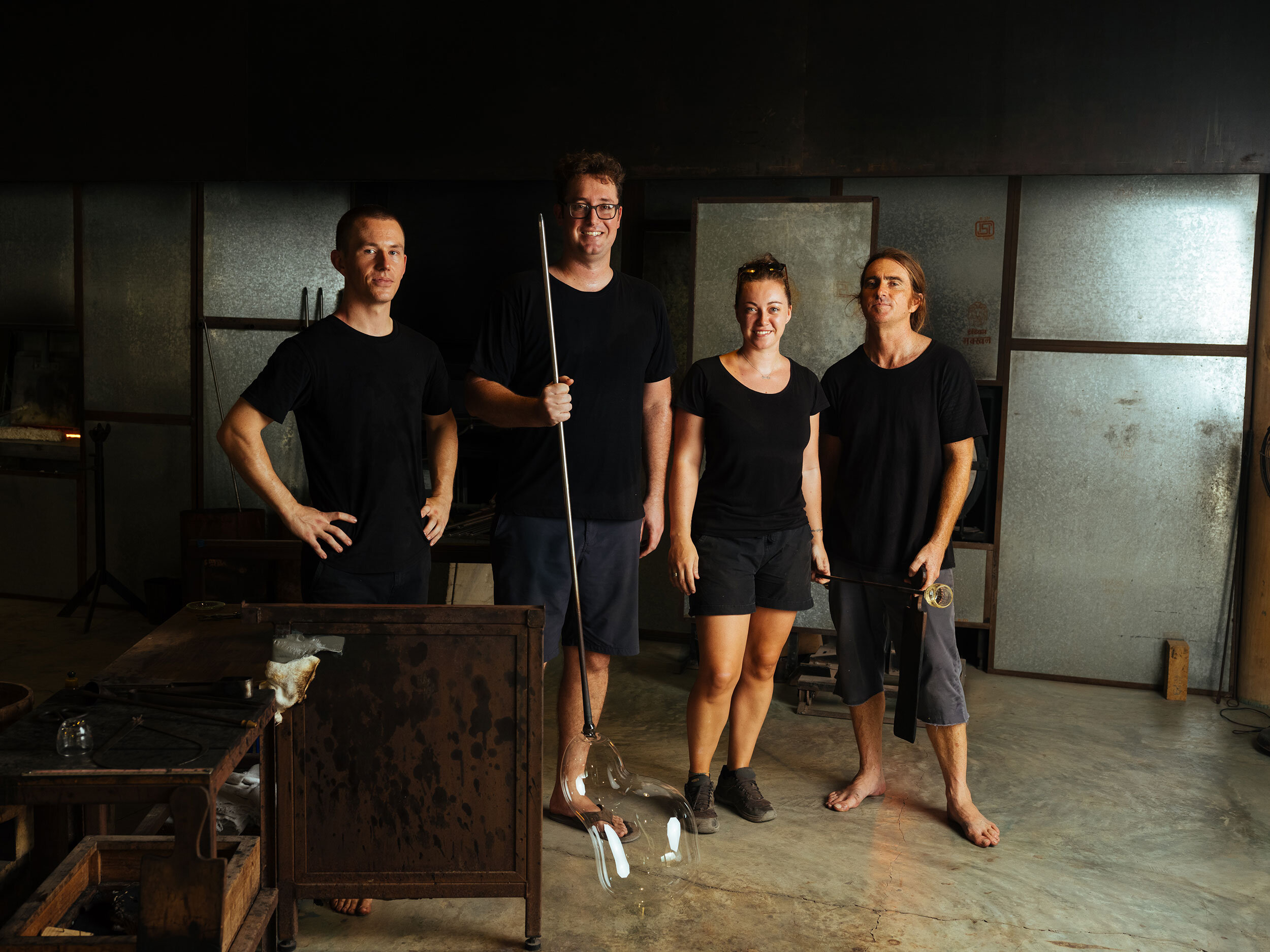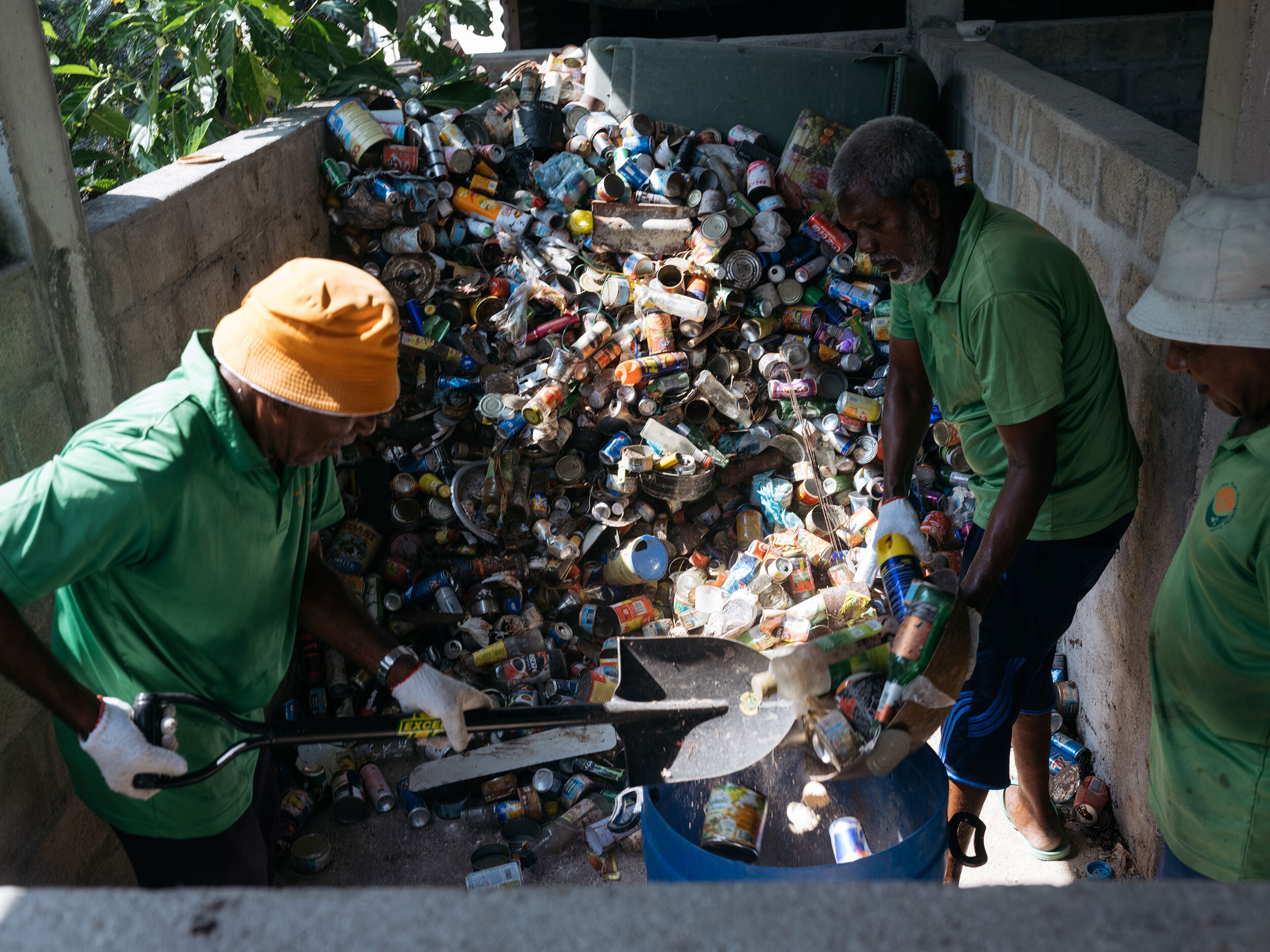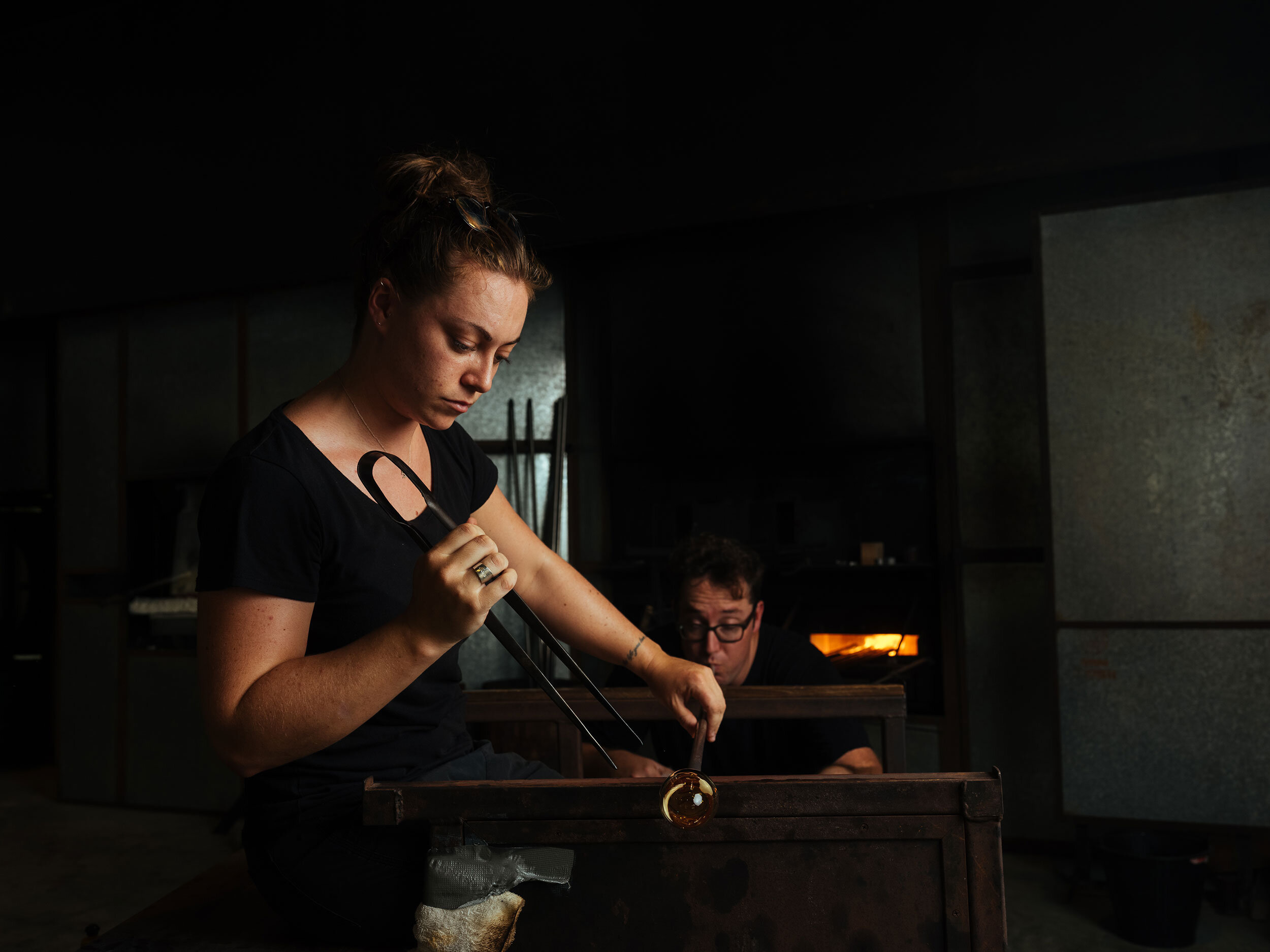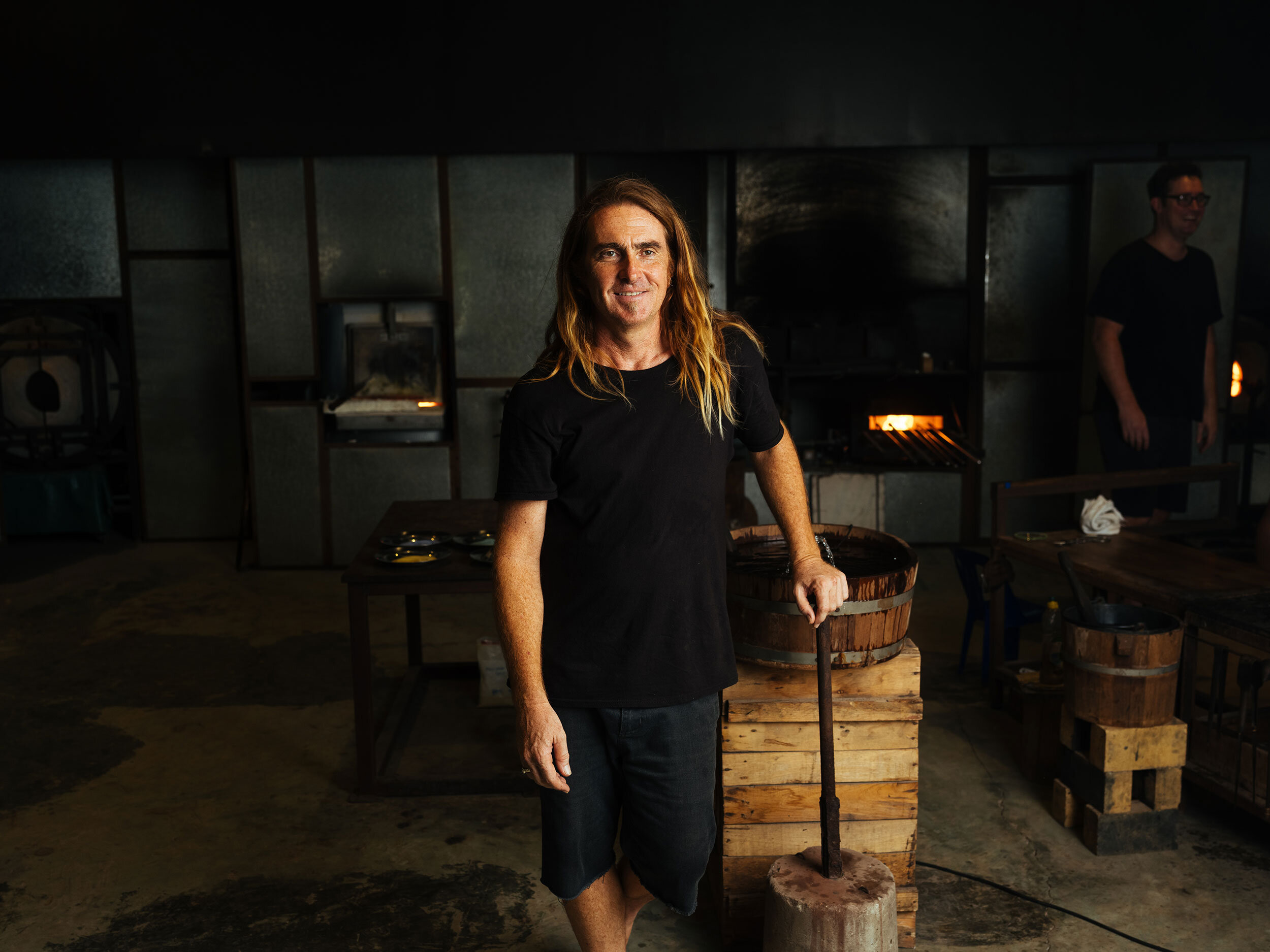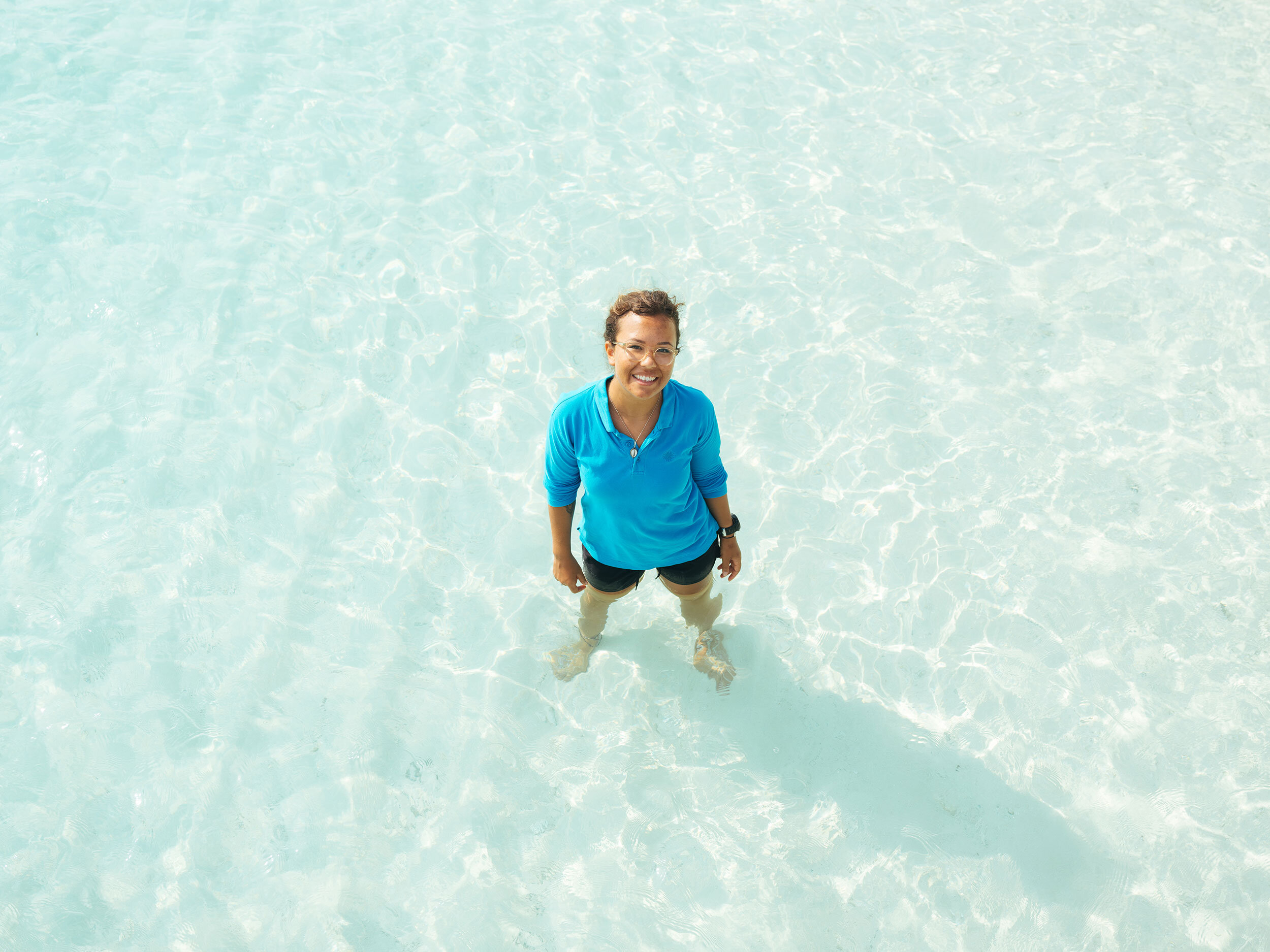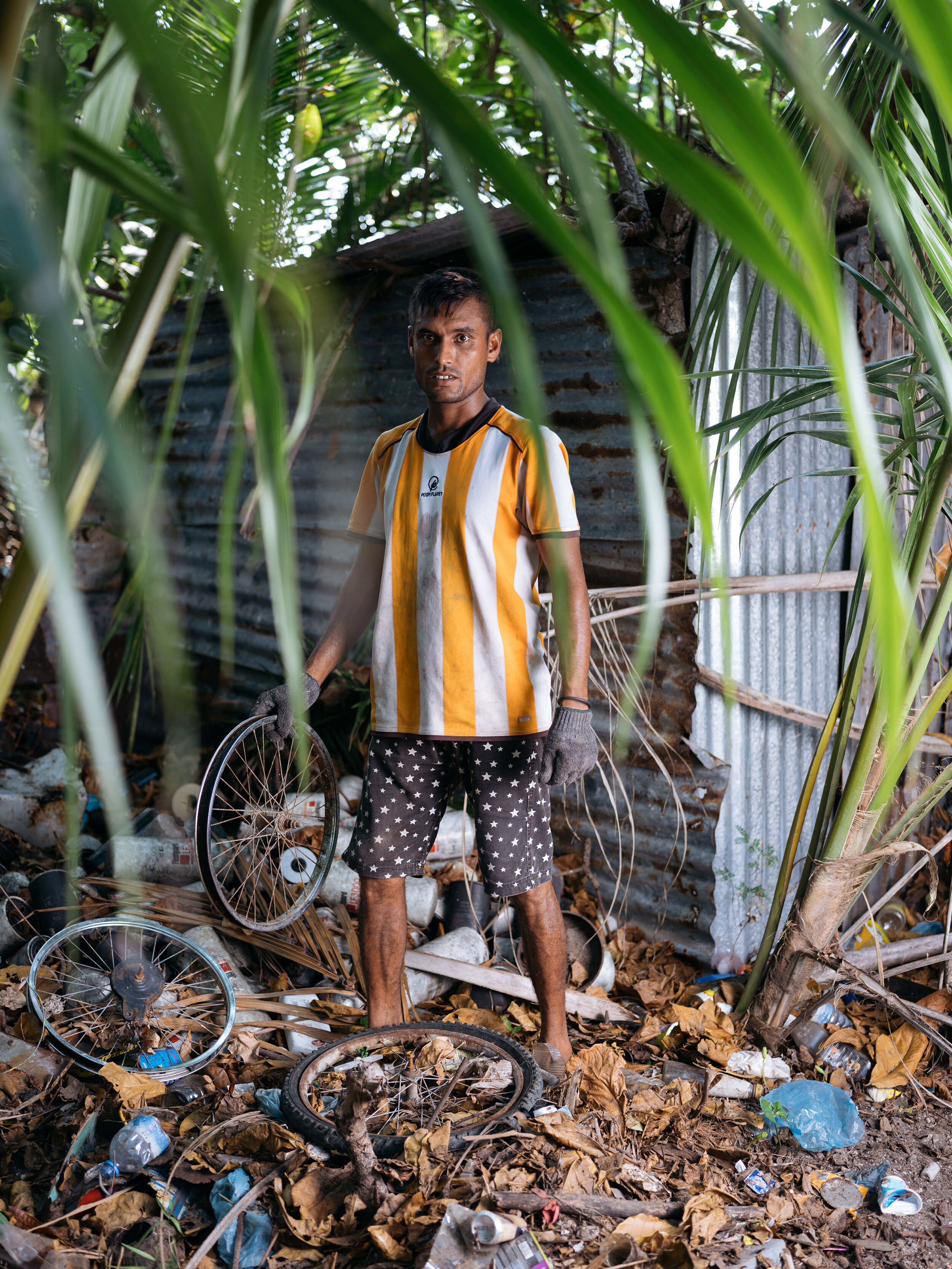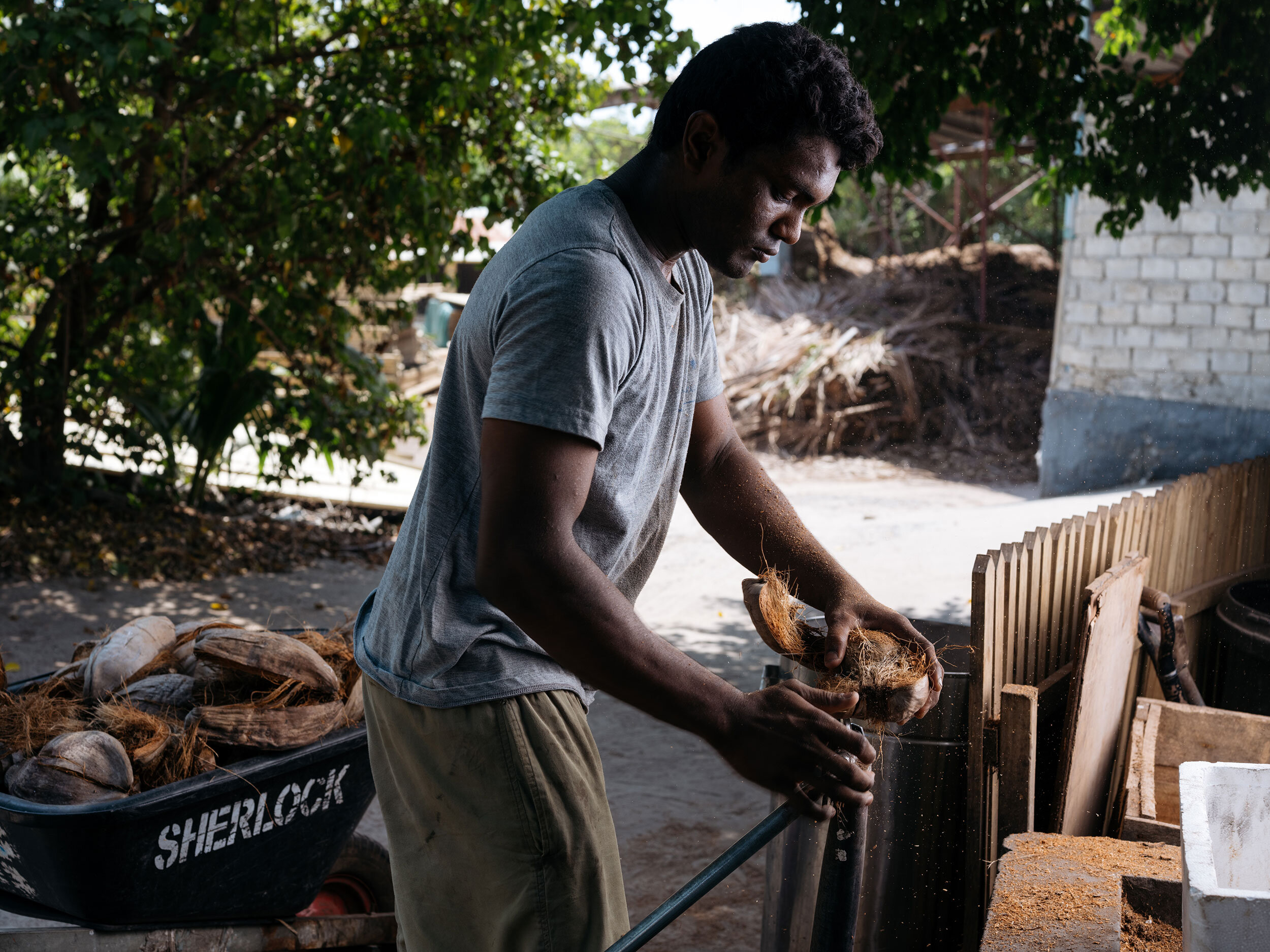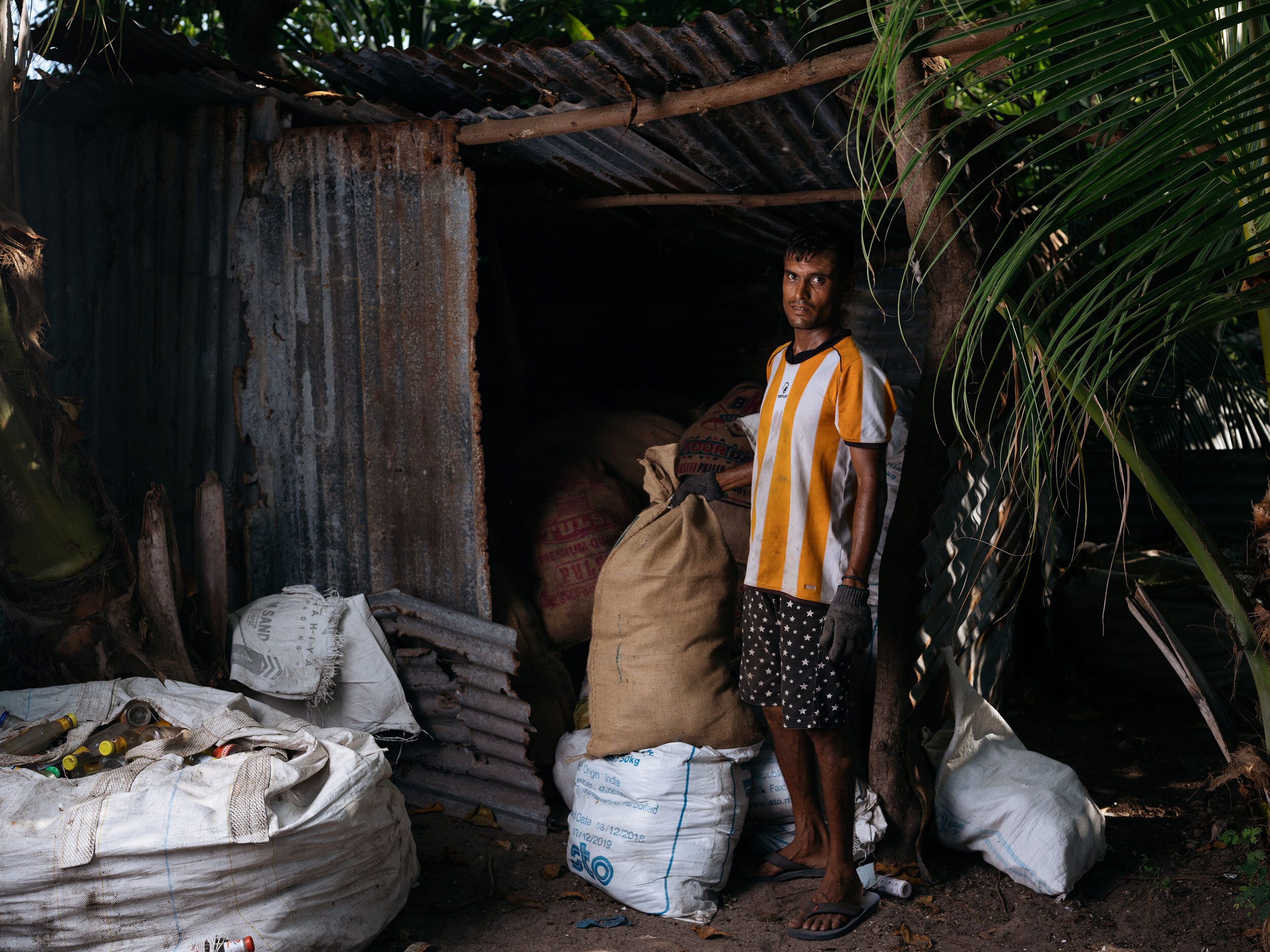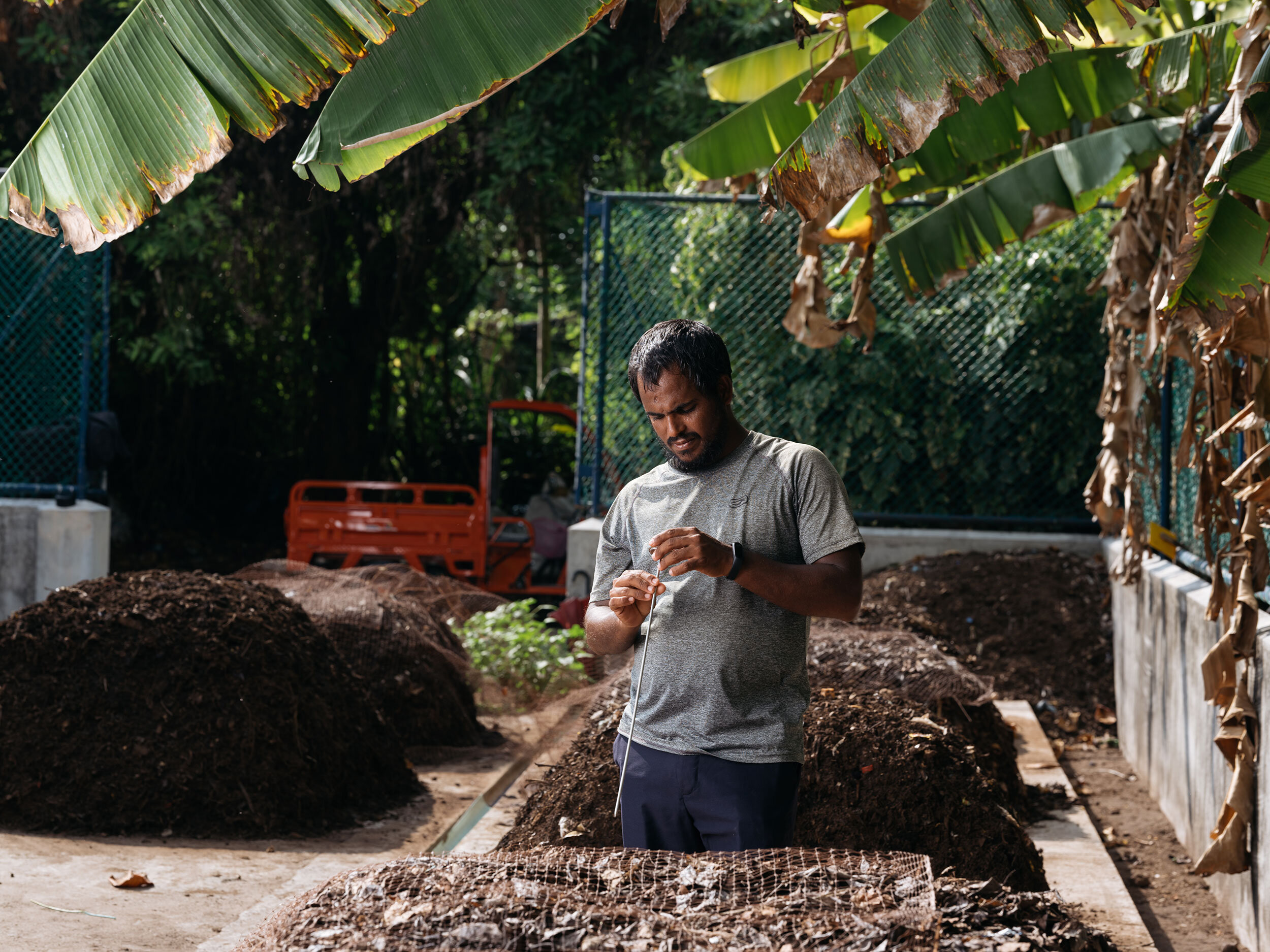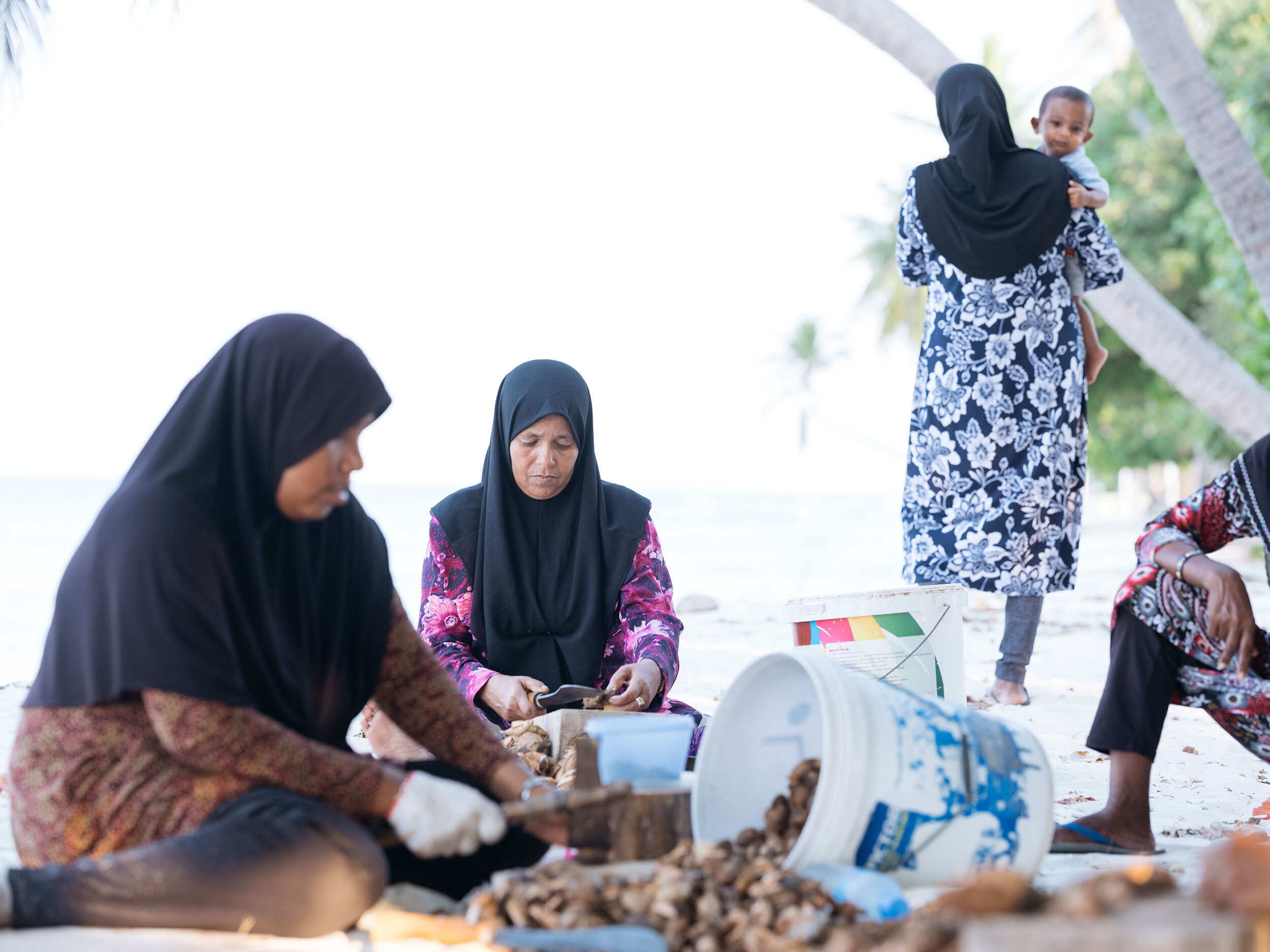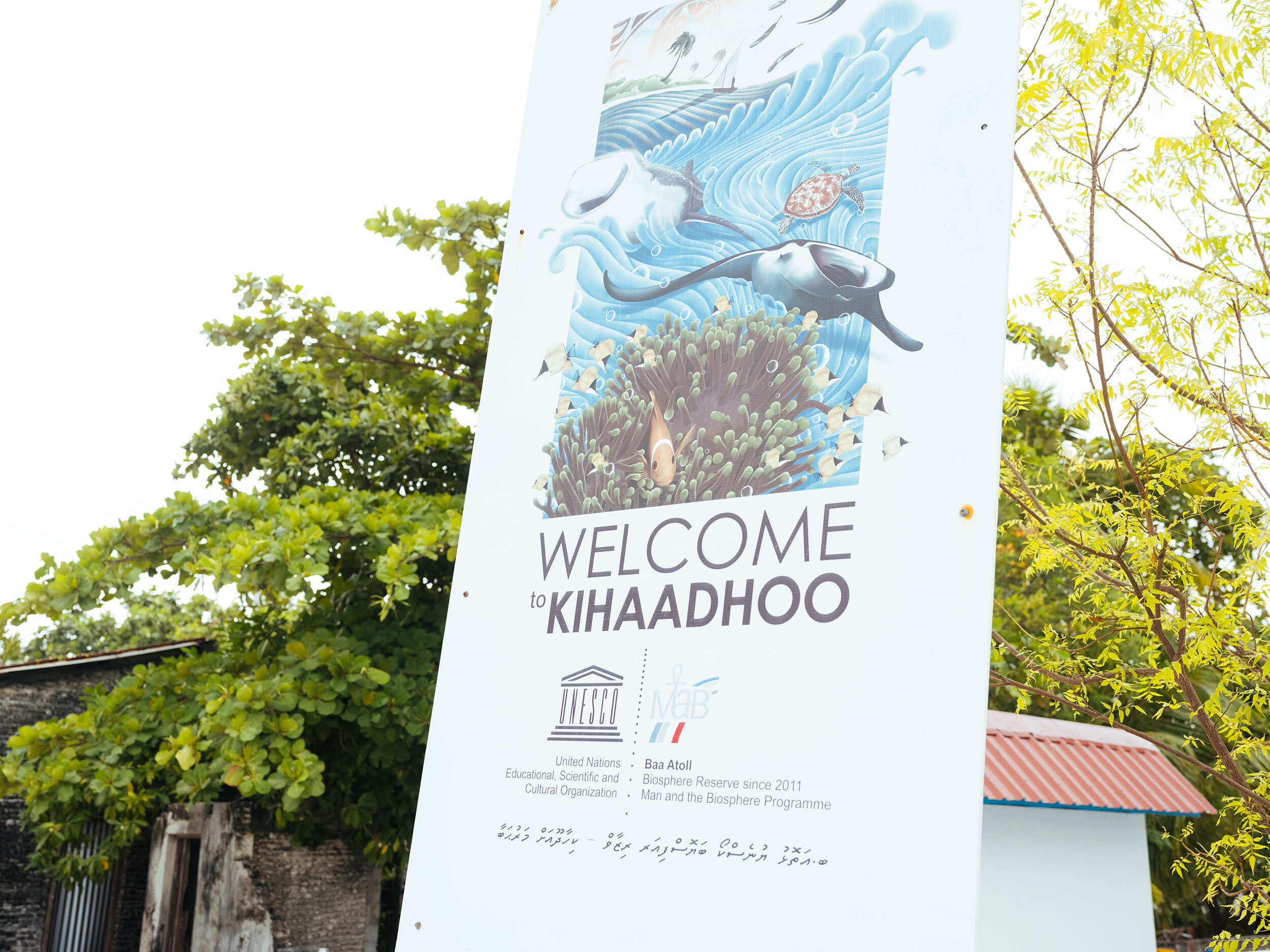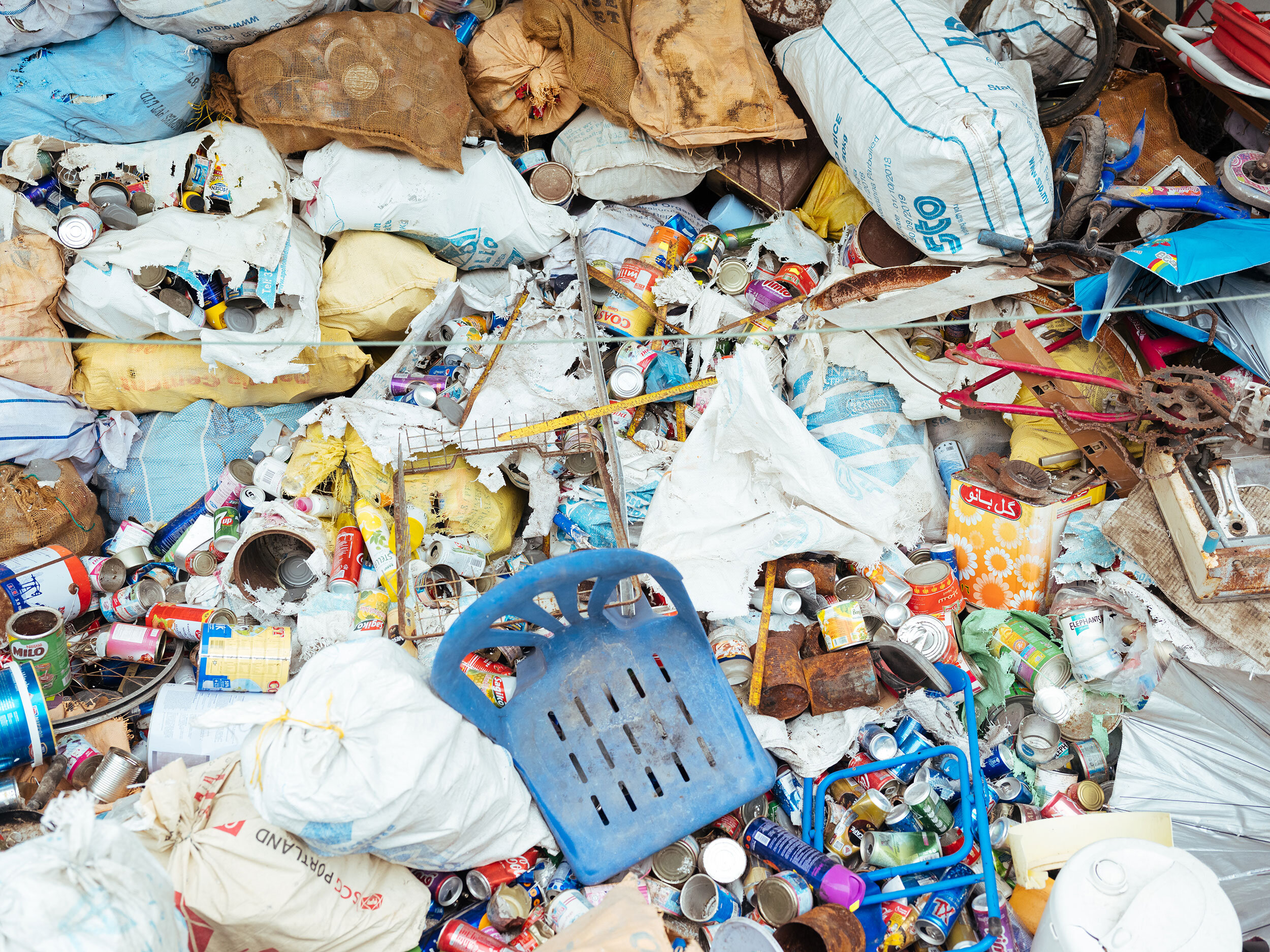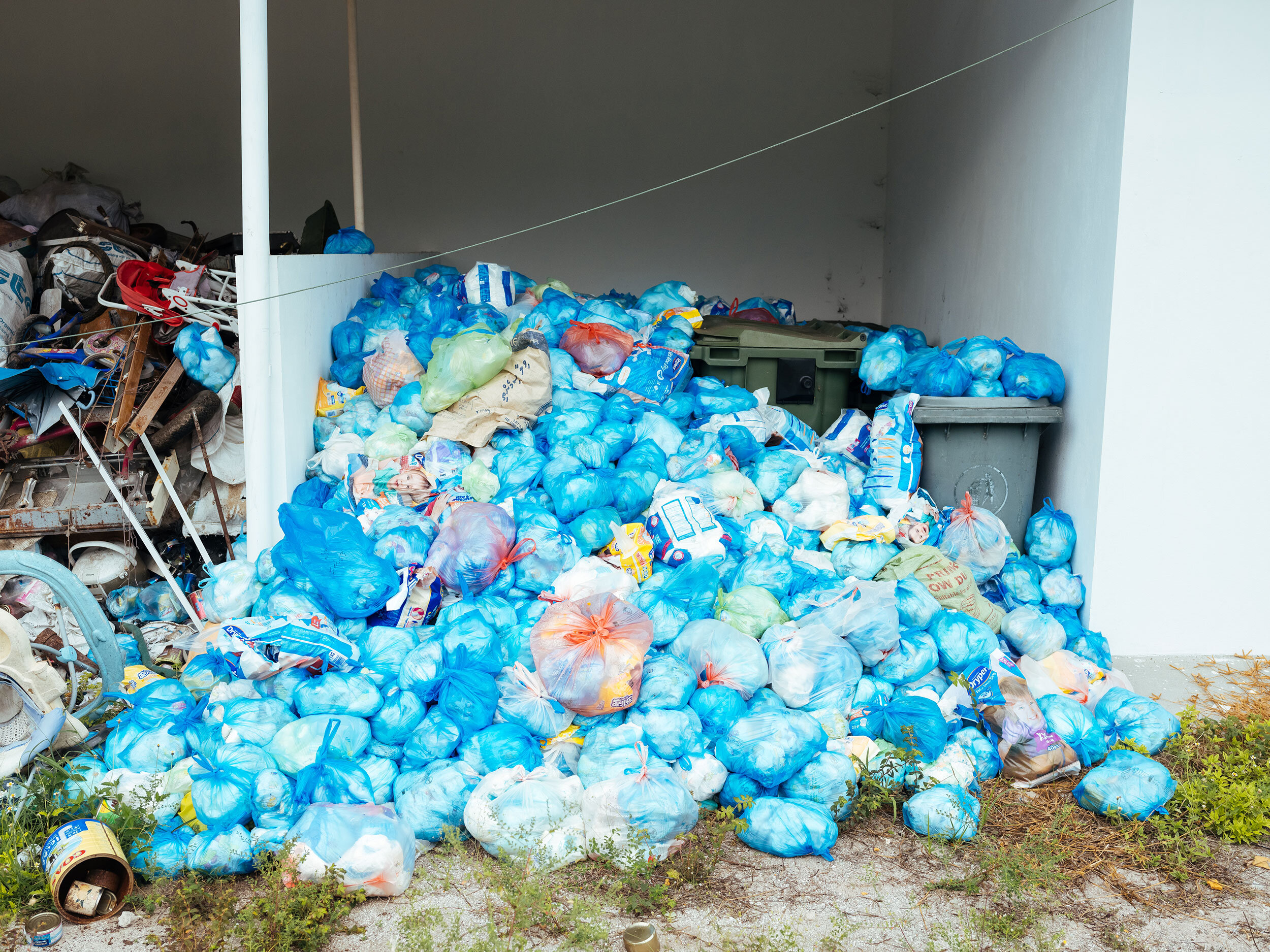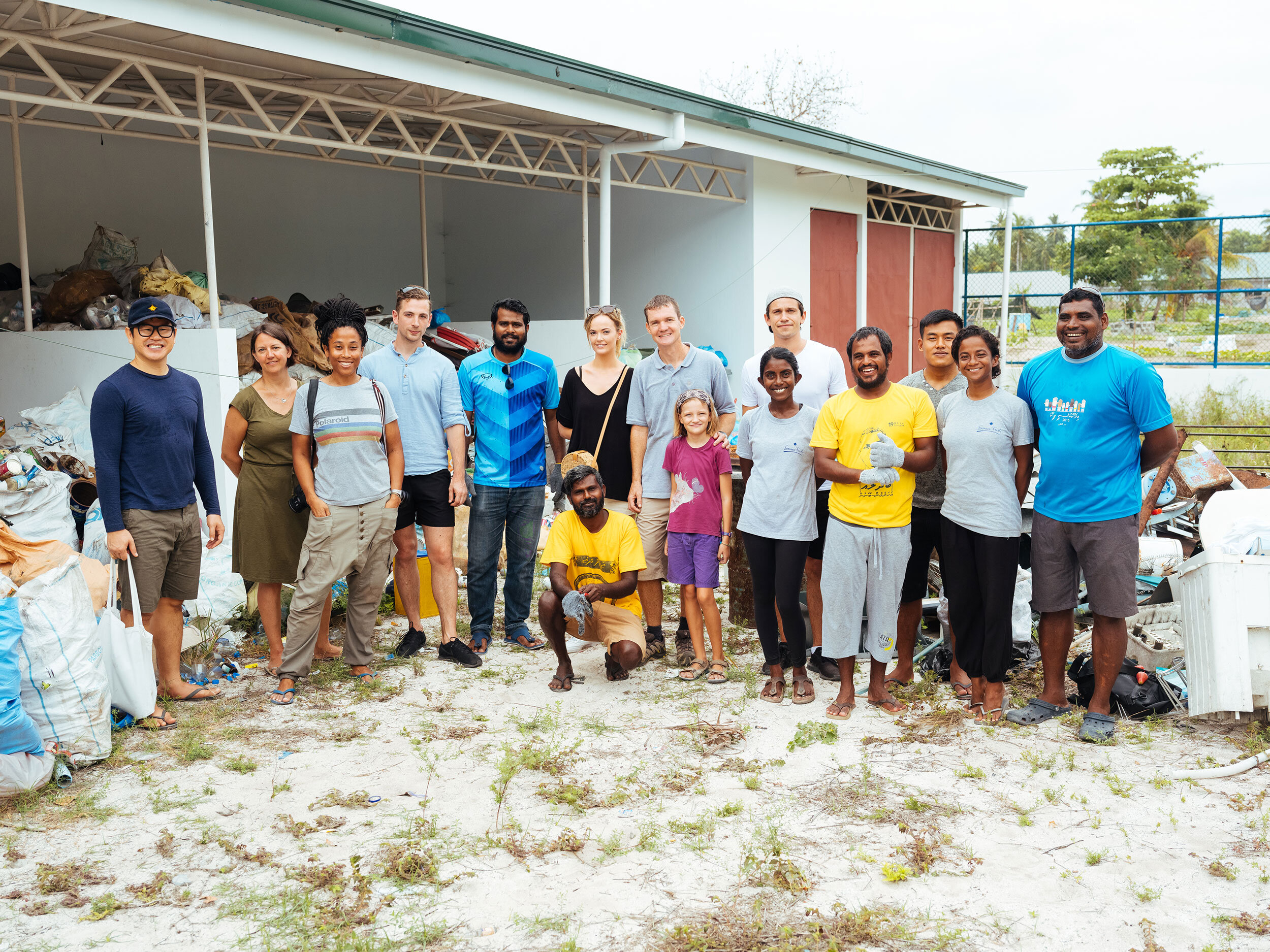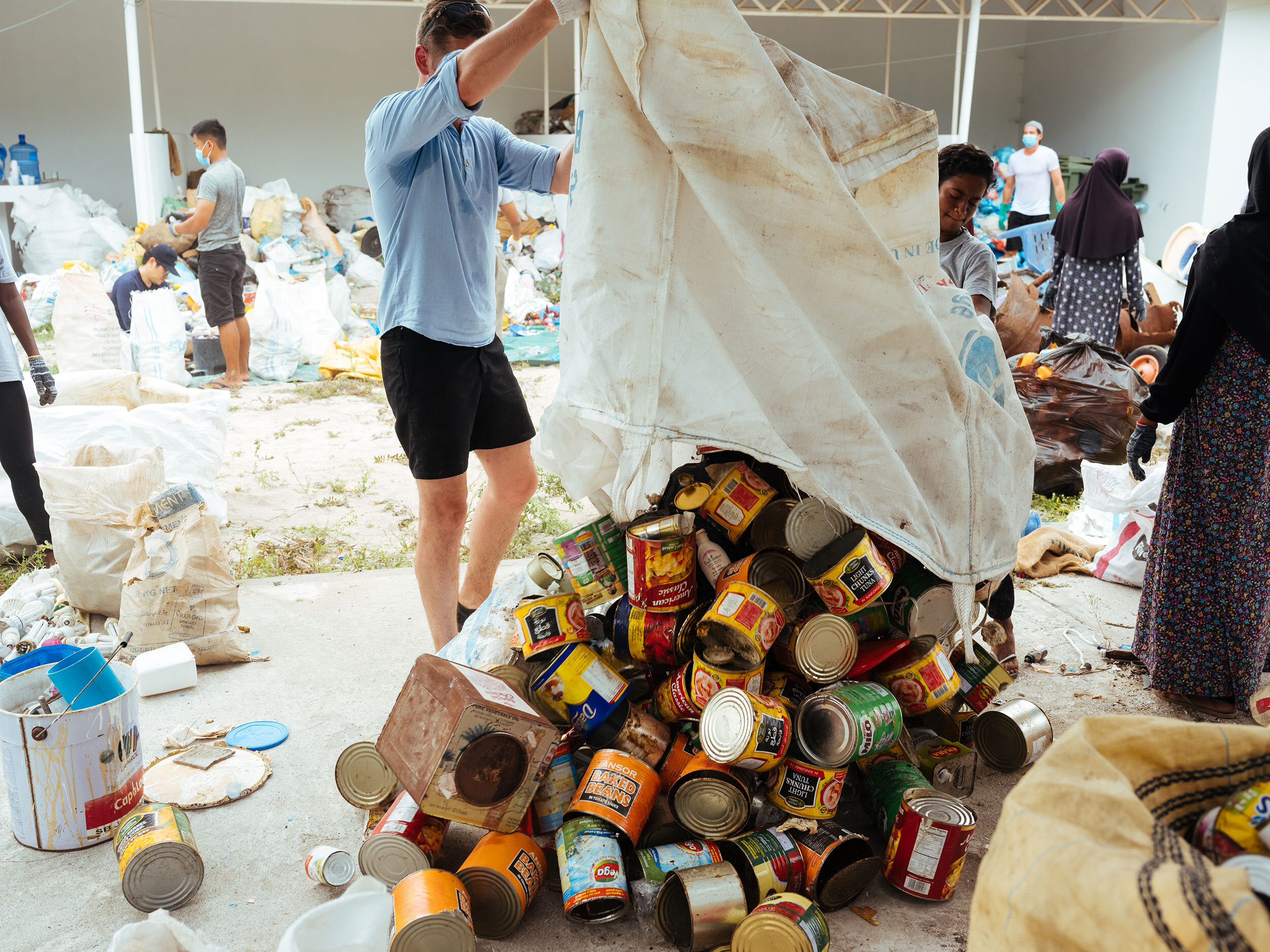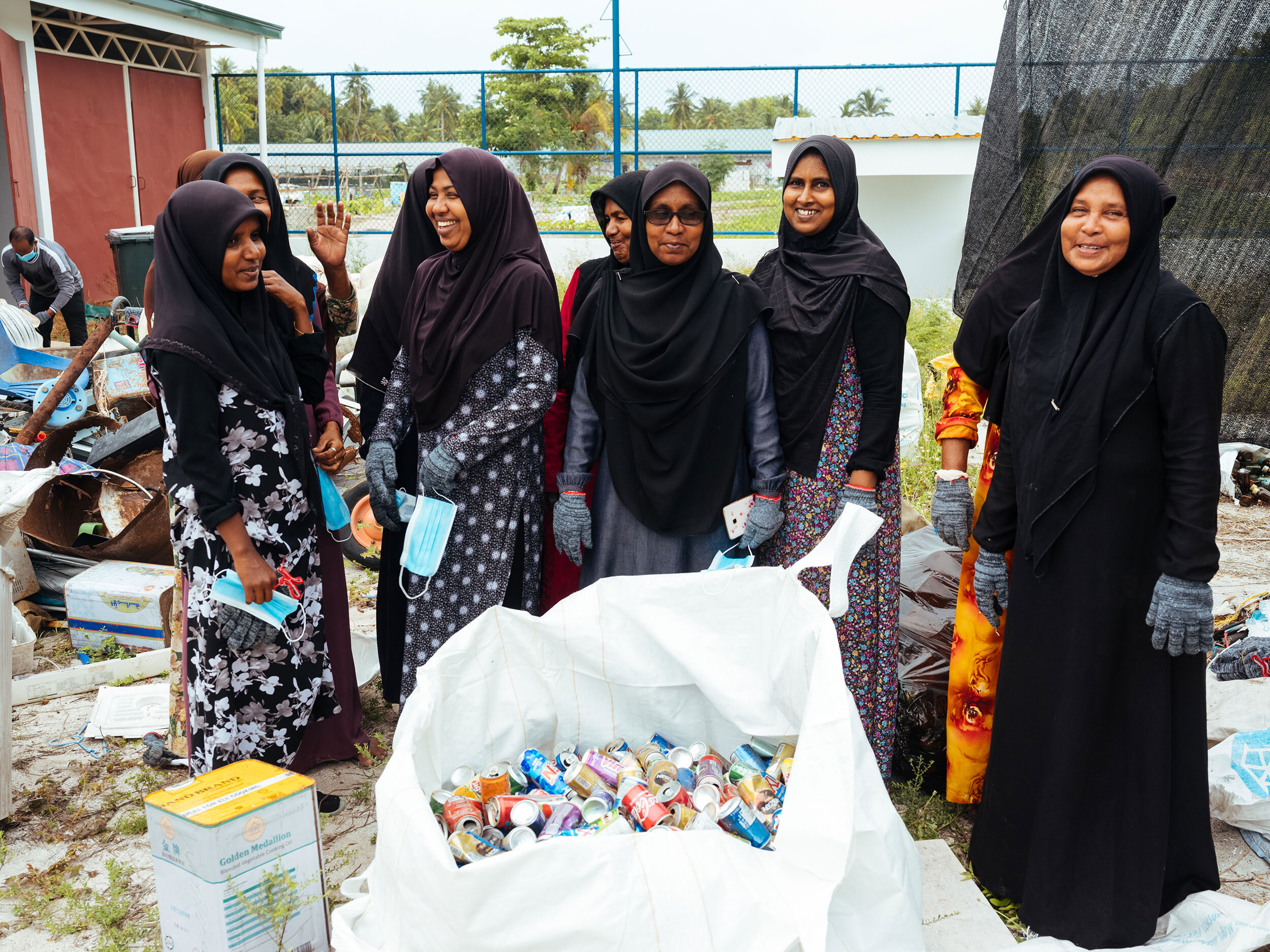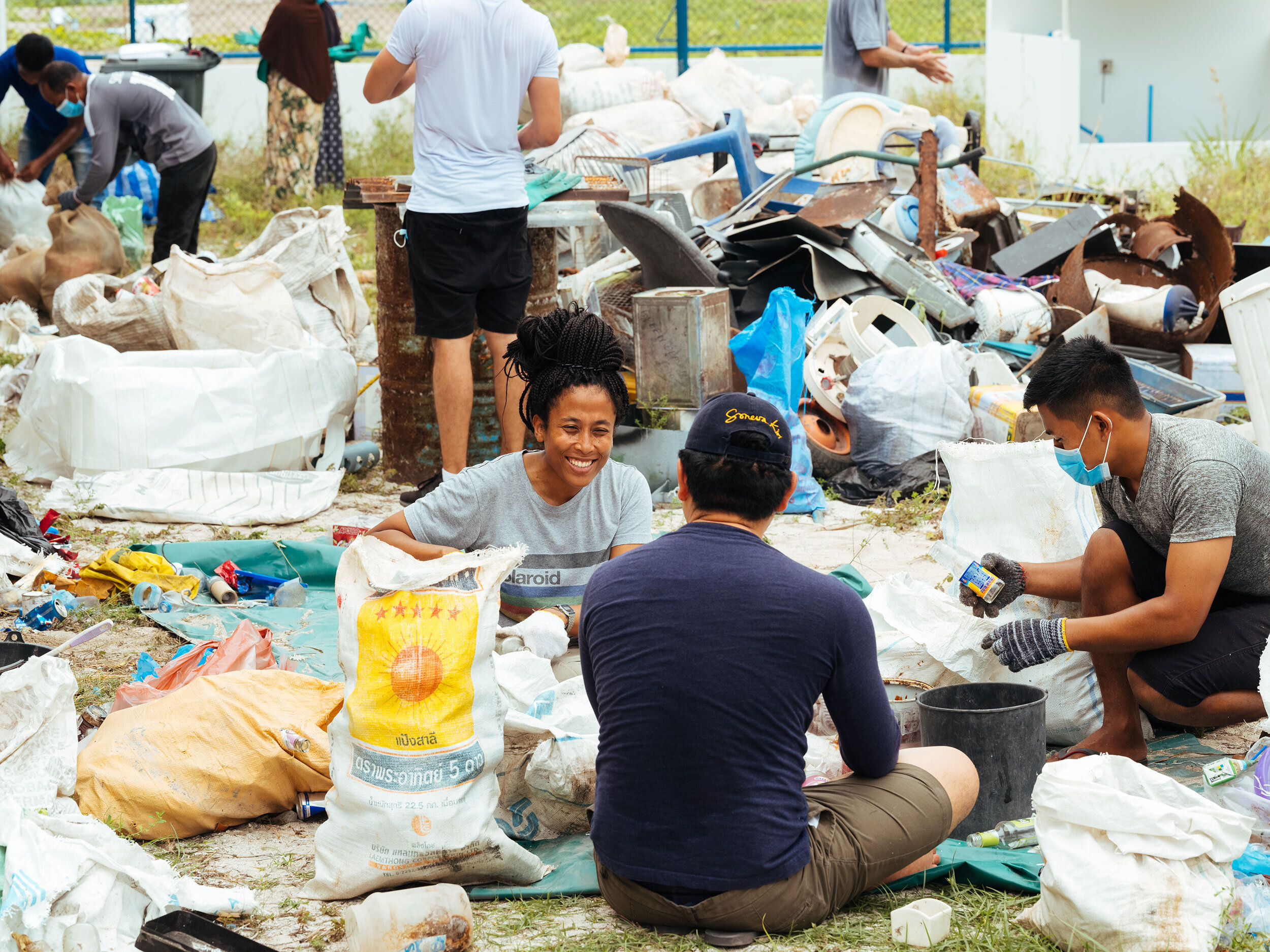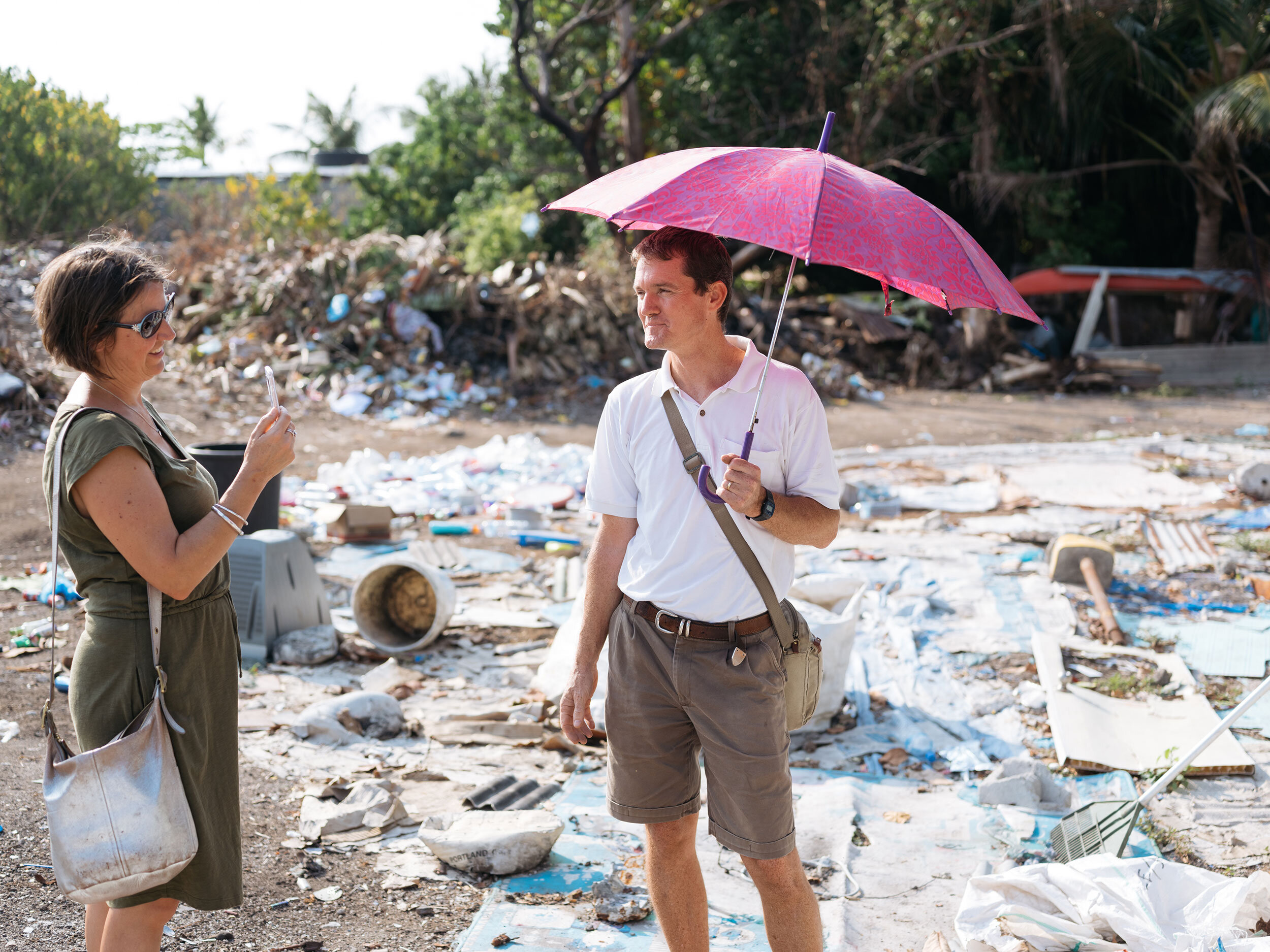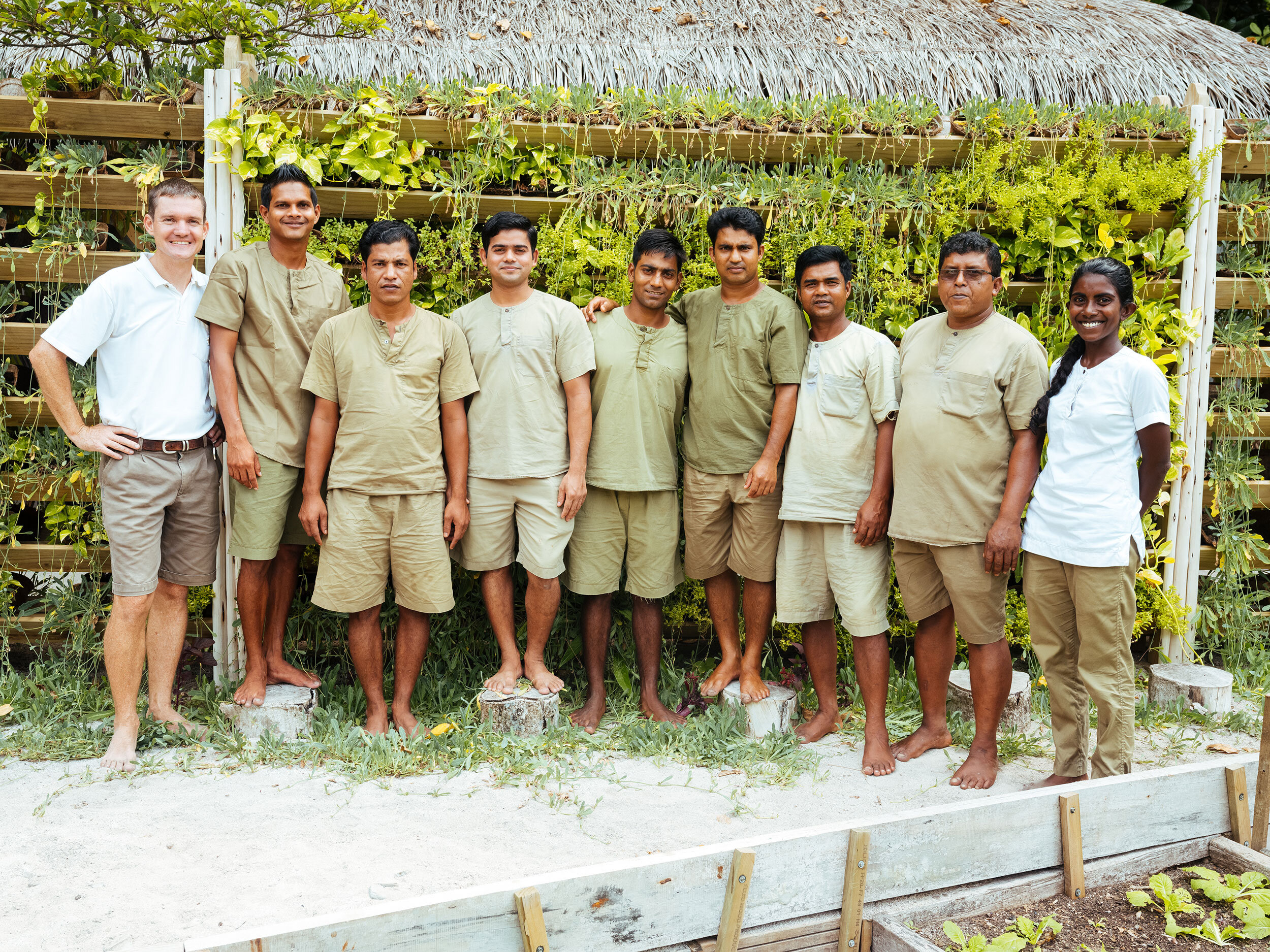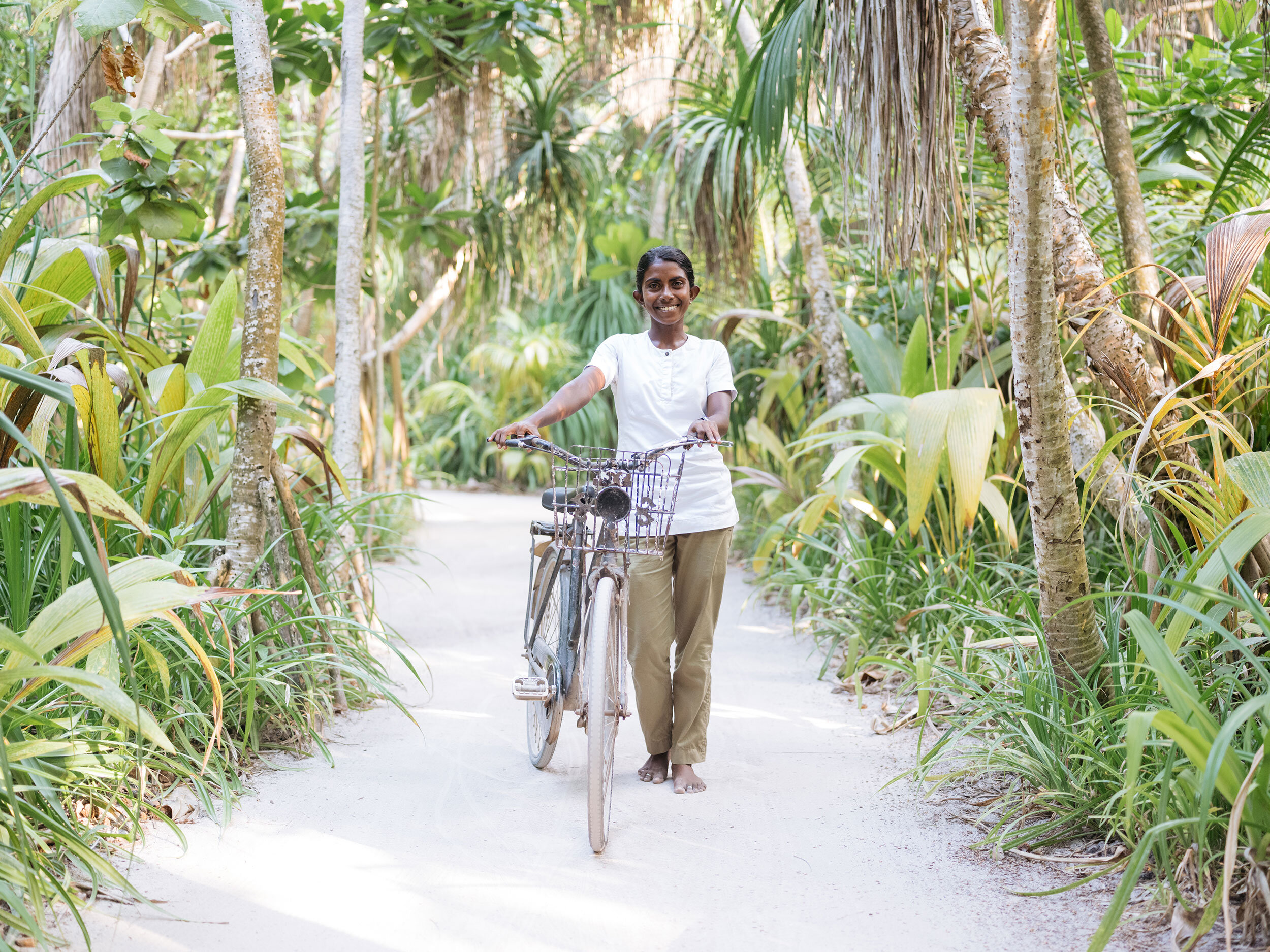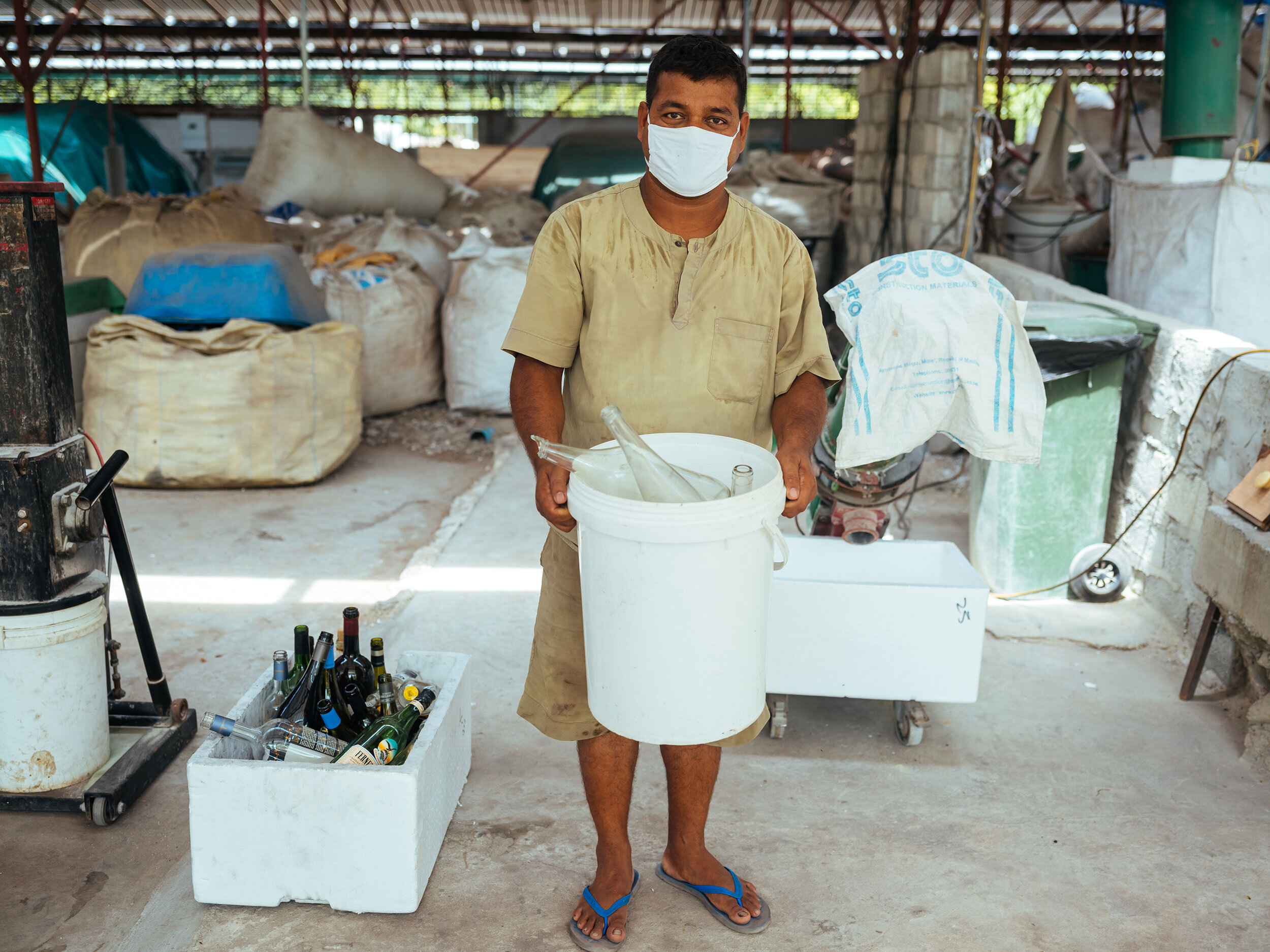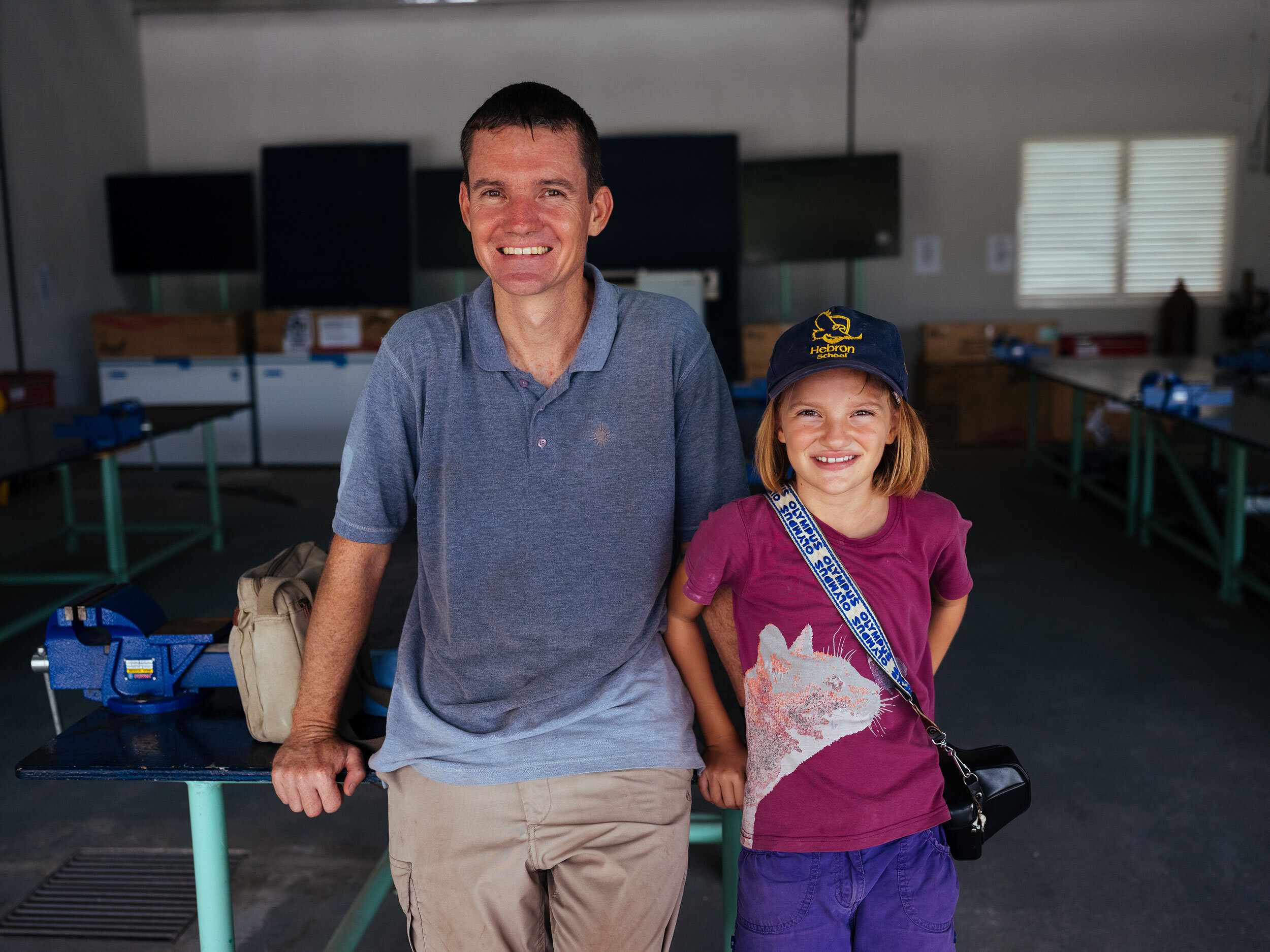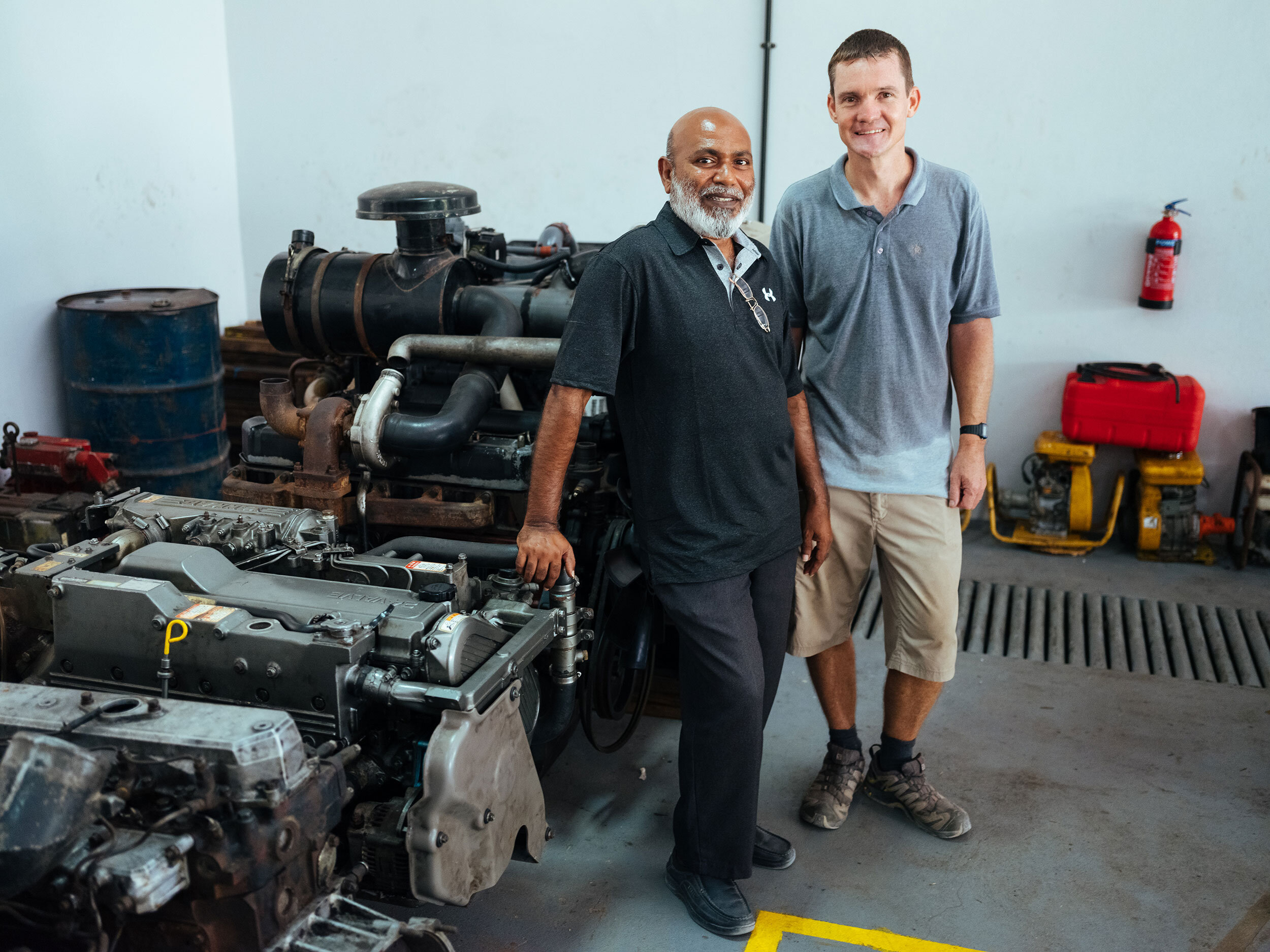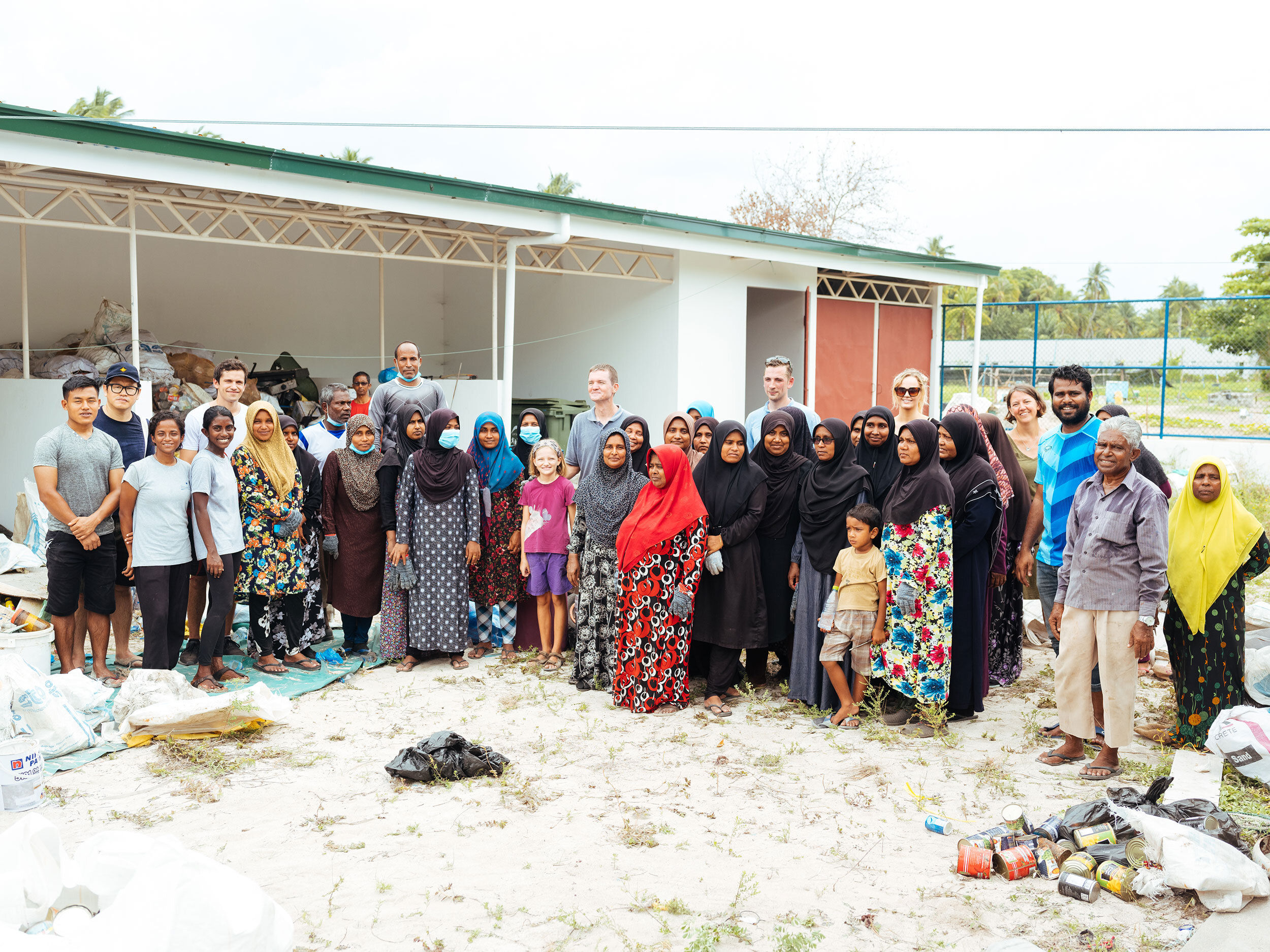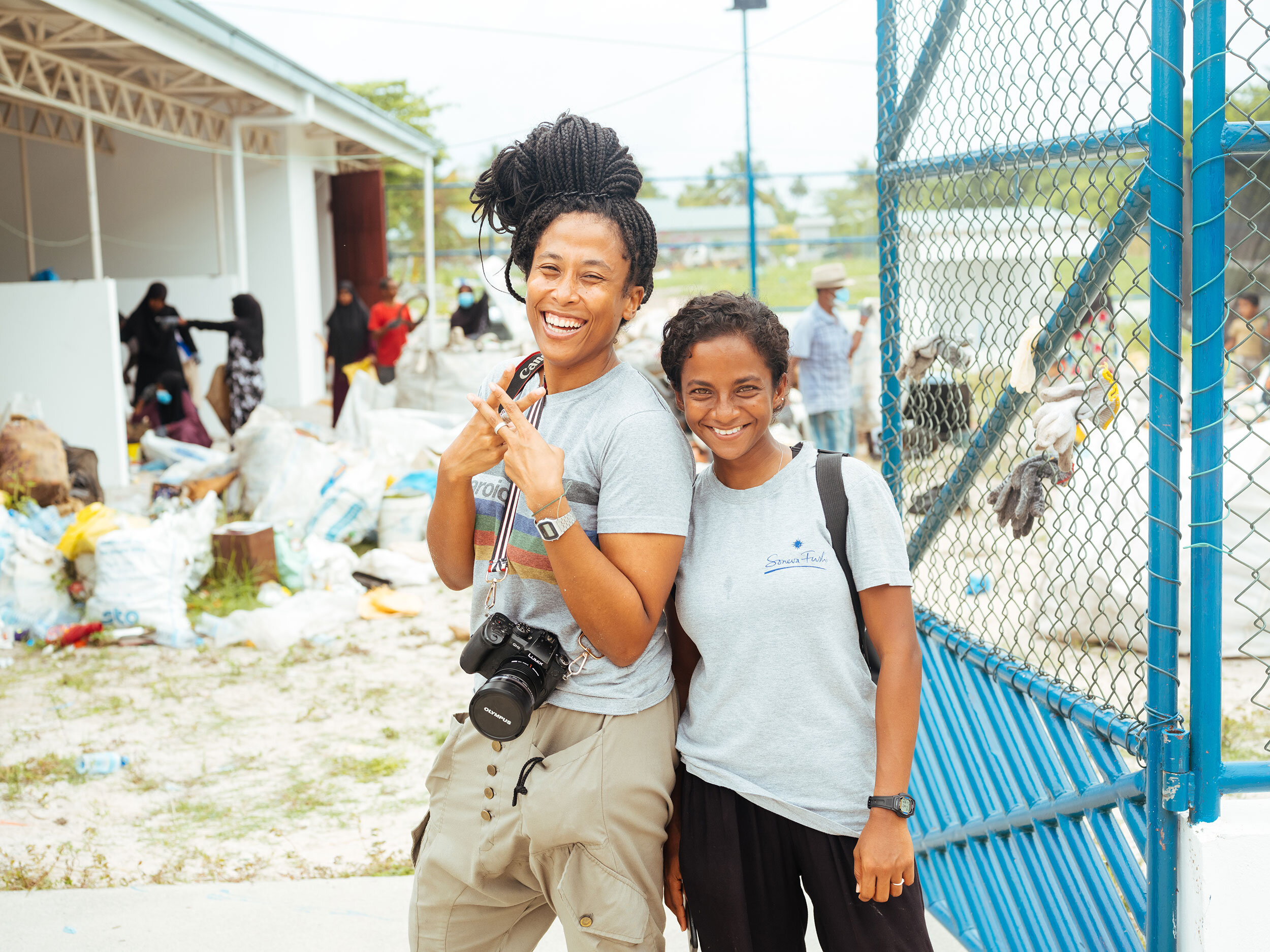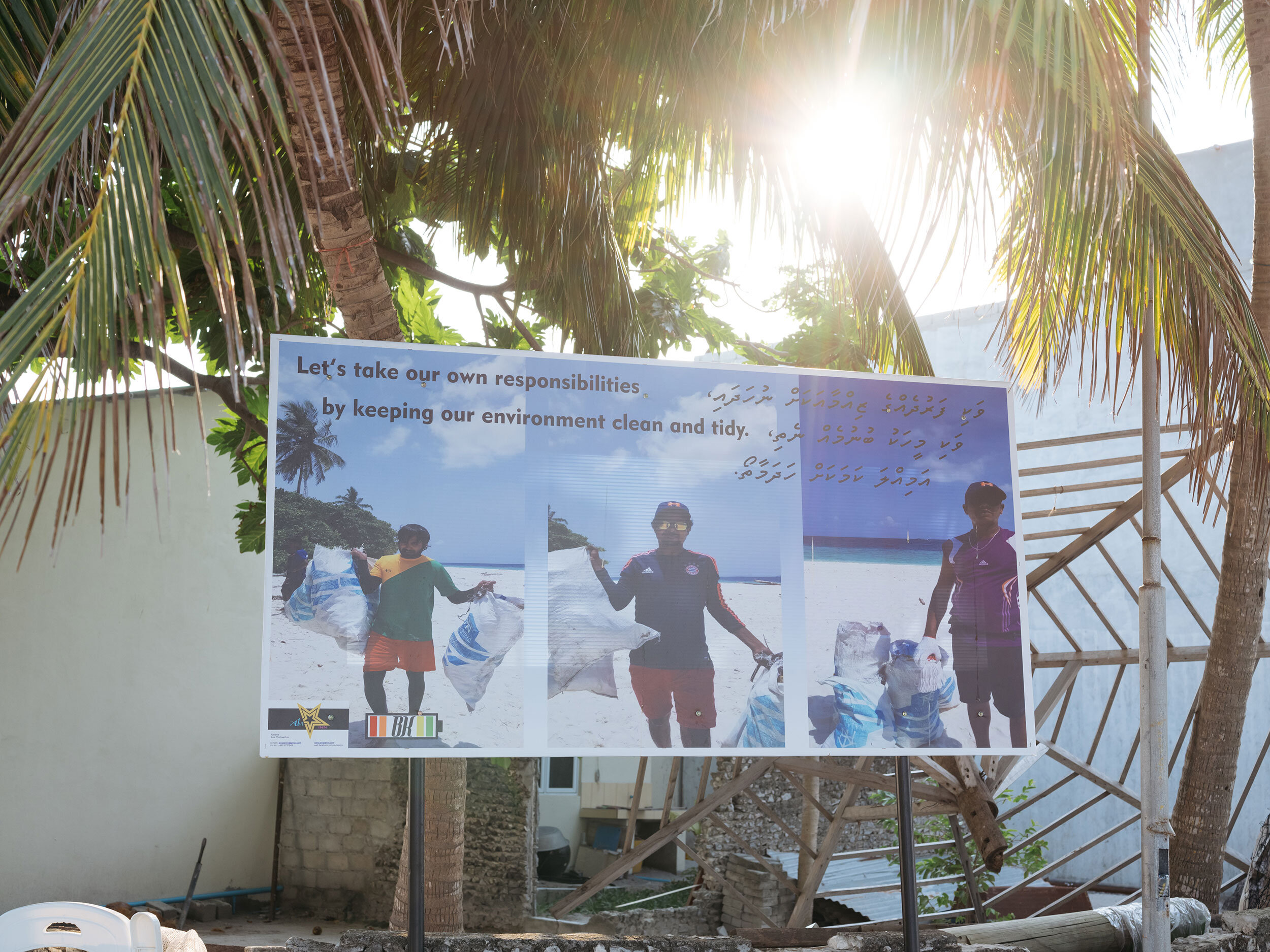Namoona Baa | Soneva | Maldives
In April, Matt Porteous headed out to the Maldives to meet the creators of the Soneva Namoona Project, exploring the ways in which islands in the Northern Atolls are improving and overcoming waste management issues. The Studio_M team helped to put together a proposal for President Solih of the Maldives, to highlight the devastation and impact of plastic across the beautiful Maldivian islands, and how they can be protected and restored through the Namoona Baa project.
The fact that the President even opened the package was a huge deal; to make him aware of the Namoona Project, which is based on a pledge to stop all open-burning of waste in three islands, was the first step in making huge change in the Maldives. The islands Maalhos, Dharavandhoo and Kihaadhoo all made this promise at a waste workshop held at Soneva Fushi, which was the first resort to test out a ‘waste-to-wealth’ model, in which all waste from the resort (for example food, metal, bottles) is chipped, ground or composted and turned into items of value, for example building blocks or fertiliser. This fertiliser is then used in their own gardens, where they grow a huge variety of food to use in their restaurants.
“We consider waste to be our assets. Food that stayed from our restaurants? It is fully composted to create rich and nutritious soil for our gardens. Expanded polystyrene packaging, which is used to keep products on the island fresh? It turns into lightweight blocks that we use in construction. And what happens to those pieces of plastic which can not be recycled? Under the Soneva Maker Program, they turn into colourful Easter eggs and other durable items. And wine bottles not only from our own restaurants but also from our neighbouring resorts? In the studio, Soneva glass turns into stunning works of art.”
‘If you need additional proof of concept effectiveness, in 2017 our Waste-to-Wealth concept brought a profit of $340,000. The Soneva Foundation invests these funds in projects that have a positive environmental, social and economic impact, and most importantly, offset carbon emissions from resort activities and guest flights.’
For example, Soneva has pledged funds from its Soneva Save our Seas programme to support creating the eco-centers on Maalhos, Dharavandhoo, and Kihaadhoo. The extremity of the necessity of these centres is highlighted when the scale of pollution becomes clear: tourists are usually forbidden from accessing Trash Island, but Matt was taken there to capture how the waste-management programme will change the future of the Maldives. The overwhelming, putrid smell of burning rubbish, mounting up day by day, collected from countries around the world, makes it so clear that rubbish has been a huge issue in the Maldives for too long, yet are often forgotten as they are out of sight and out of mind.
In September, President Solih announced:
“We have thus far undertaken several measures intended to reduce and ultimately eliminate single-use plastic in the workplace and in consumer lifestyles. Our aim is for the Maldives to become plastic-free by the year 2023.”
The Namoona project, Soneva and the Maldives, in general, is beginning to focus more on cleaning up seas and highlighting the importance of the future of clean oceans, particularly through their venture of the Soneva Surf programme. Soneva has founded the world’s first fully sustainable surfing programme, offering a luxurious surf experience with eco-friendly surfboards, leashes, fins, rash guards, sunscreen and board wax.
As part of this programme, Soneva also connects with local communities to help support the growth and development of surfing across the Maldives. They hope to encourage the younger generation to respect the power and vulnerability of their ocean-dependent islands. To get more young people involved, they aim to work with partners to source more equipment, opportunities and teaching for aspiring Maldivian surfers, including organising local surfing events in the future.
Website - www.soneva.com
Instagram - @namoonabaa
